Each year, Planeterra’s Global Community Tourism Fund helps community tourism enterprises take their ideas to the next level.
Through small grants of up to $3,500 USD, combined with training and mentorship, the Fund empowers local communities to strengthen their tourism offerings and expand their impact.
This year, we received an inspiring array of applications from members of Planeterra’s Global Community Tourism Network. Every proposal showcased the creativity and dedication of local changemakers using tourism to drive positive change, demonstrating the true potential of community tourism.
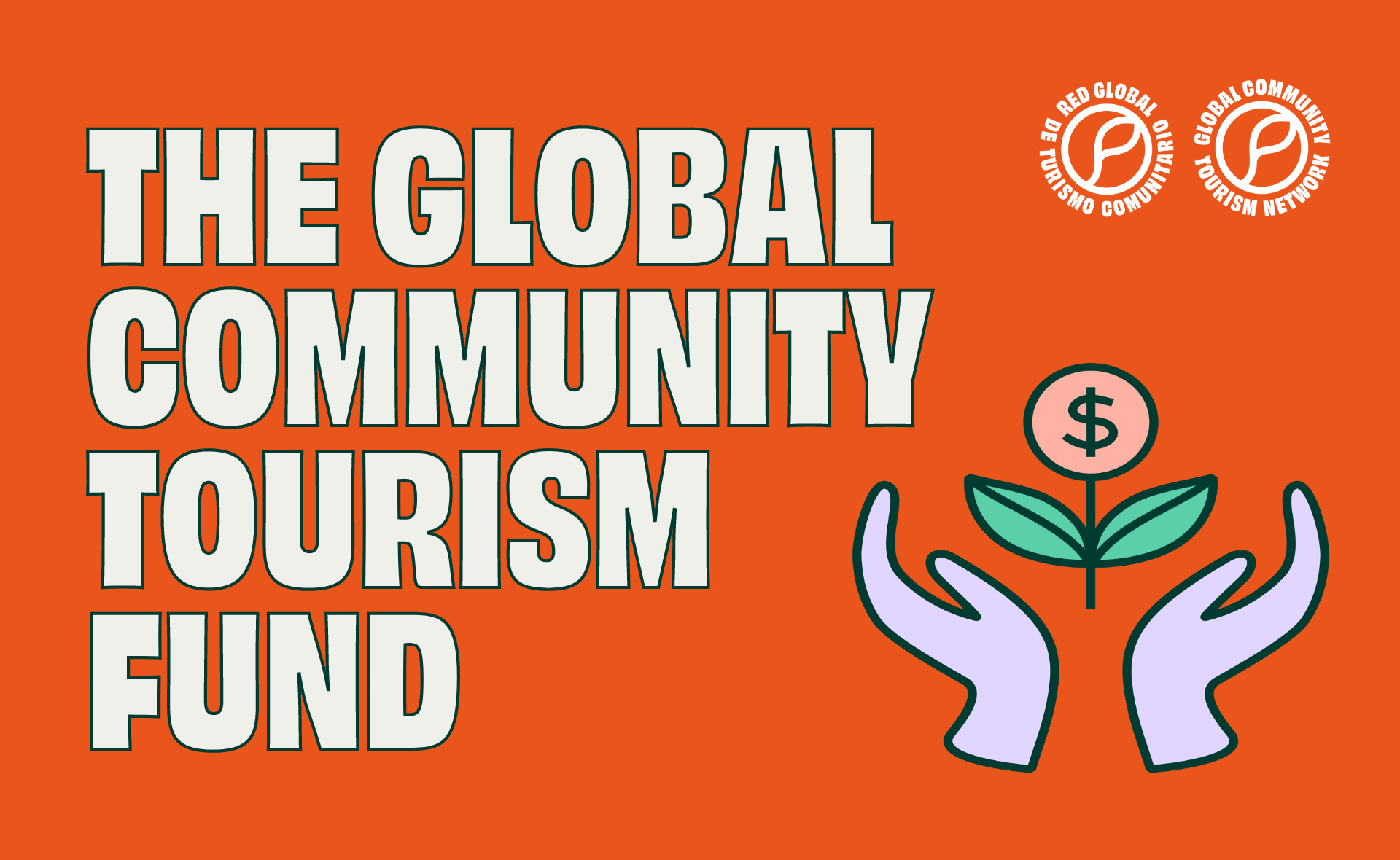
After careful review, we’re thrilled to introduce the 2025 Global Community Tourism Fund recipients in this blog. Stay tuned as we share more about their initiatives, stories, and progress in the coming months.
Read on to meet this year’s recipients.
Africa
Train & Travel (Bingerville, Côte d’Ivoire)
Train & Travel is an ecotourism non-profit that provides young women aged 18 to 35 with opportunities to participate in community-based and sustainable tourism through training and the development of local tour guides. The organization supports communities in creating environmentally friendly, innovative, and income-generating solutions, with the ultimate goal of promoting ecotourism by economically empowering women.
Learn more about their work by visiting their website, Instagram, and Facebook.
The project they’ll be working on
“Travel Creative Sewing Lab”
Since 2023, Train & Travel has partnered with Stop au Chat Noir in Bingerville to co-create a Creative Lab supporting women survivors of gender-based violence. The lab, equipped with sewing machines, a computer room, a mini-library, and a small garden, provides a safe space for women to regain confidence, develop creative skills, and work toward economic independence.
Two cohorts of around 15 women have already been trained in sewing and small-scale production, with some selling their creations near Banco National Park. Building on this success, the program is expanding to develop a nature-inspired souvenir collection co-designed with 35 volunteer women guides, reflecting the park’s biodiversity.
The upcoming cohort will train eight survivors in professional sewing focused on sustainable, eco-conscious products, co-create a collection of 12 tourism items, and build life and business skills including small business management, digital promotion, storytelling, and financial literacy. Participants will also have opportunities to lead tours and develop tourism experiences, linking women’s empowerment with nature conservation and sustainable tourism.
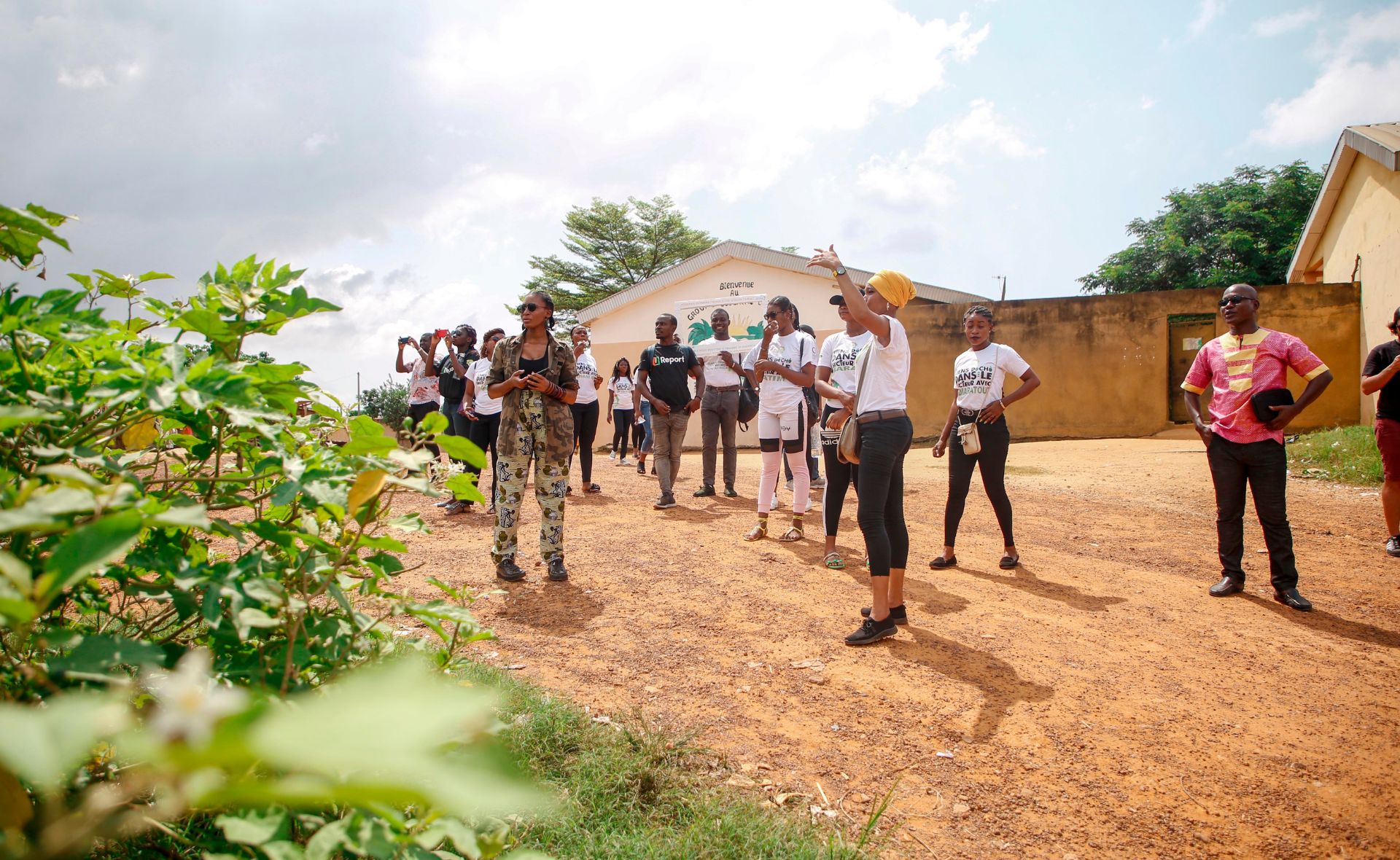
Ewaffe Cultural Village (Naggalama Mukono District, Uganda)
Ewaffe Cultural Village offers visitors an authentic taste of Uganda’s unique cultural norms and traditions. Serving as a gateway where food tourism and cultural immersion meet, the village provides experiences ranging from farm tours, cooking lessons, and fishing activities to pottery workshops and captivating storytelling sessions. Each visit is designed to transport guests to the heart of Uganda’s cultural heritage.
In 2024, Ewaffe Cultural Village was honoured with the Best Cultural Tourism Experience of the Year award during the World Tourism Day Celebrations, presented by the Ministry of Tourism, Wildlife, and Antiquities.
This one-day experience takes place in Naggalama, Mukono District, along Kayunga Road, just an hour’s drive from Kampala, the heart of Uganda.
Learn more about their work by visiting their website, Instagram, X, and Facebook.
The project they’ll be working on
“Ewaffe Village Souvenir Hub”
Ewaffe Cultural Village in Naggalama, Mukono District, is an eco-tourism centre celebrating the heritage of the Baganda, one of East Africa’s largest tribes. With Planeterra’s support, the village will establish a Souvenir Hub, a dedicated space offering authentic, locally crafted products by Baganda artisans.
The initiative will celebrate cultural traditions, empower artisans through sustainable income opportunities, and enrich the visitor experience with meaningful cultural exchanges. The hub will feature well-designed display areas, storytelling for each craft item, and increased engagement between tourists and artisans, creating a lasting platform for cultural preservation and community development.
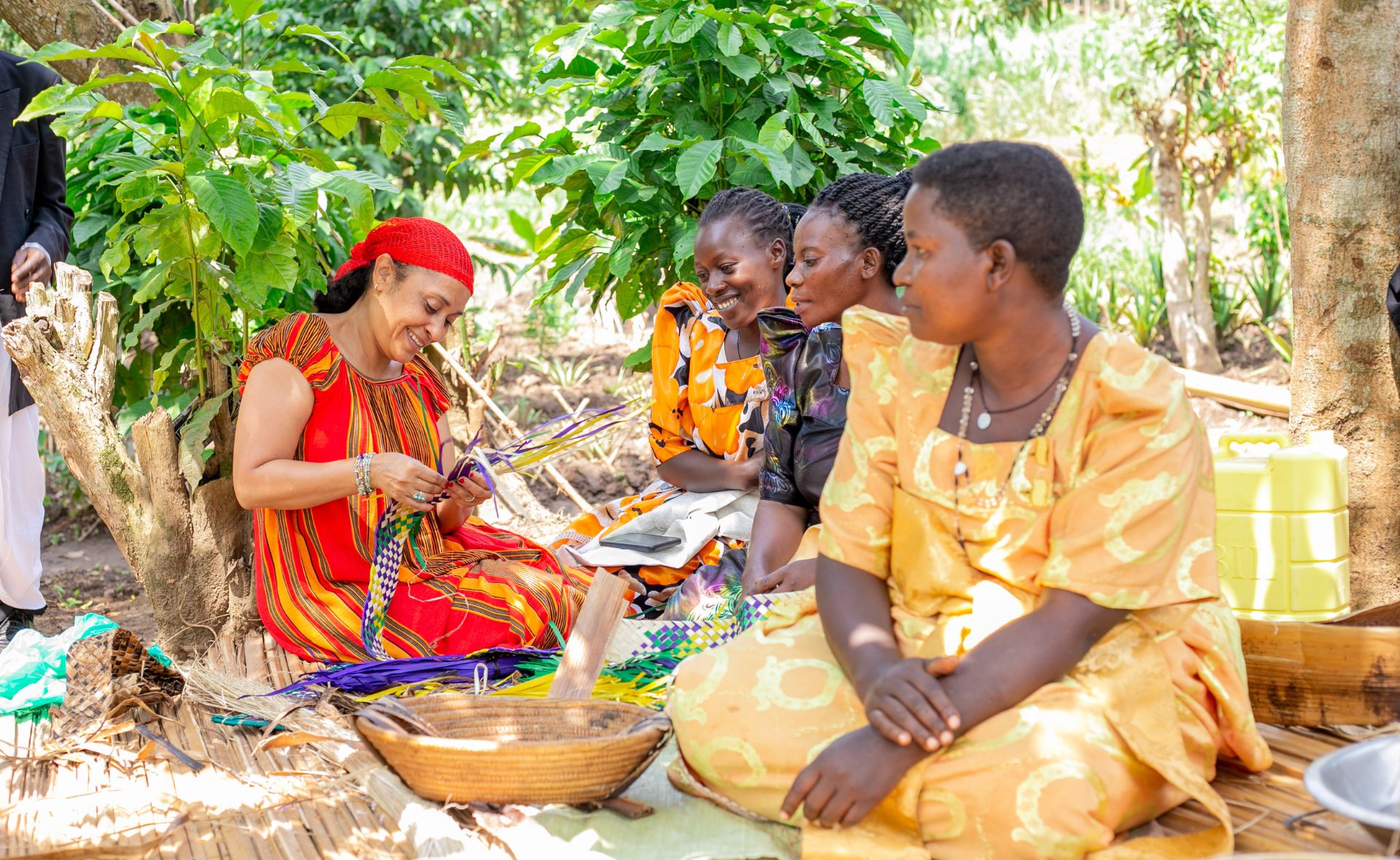
Murambo Bee Keeping Association (Murambo Village, Rubanda, Uganda)
Murambo Beekeepers Association, founded in 2014 by Ezra Sigirenda, is a community-based organization in Kabale and Rubanda Districts, Uganda. It empowers local farmers, particularly women and youth, through sustainable beekeeping, honey production, and community tourism.
Visitors can participate in hands-on beekeeping, learn traditional honey harvesting techniques, and prepare enturire, a locally fermented honey-sorghum drink. This nature- and culture-based tourism adds value to honey production while promoting biodiversity, climate awareness, and economic resilience.
Murambo’s mission is to transform communities through beekeeping and foster self-reliance via training, innovation, and partnerships.
Learn more about their work on Facebook.
The project they’ll be working on
“Sweet Harvest: Enhancing Community Tourism through Beekeeping and Traditional Honey Brewing in Southwestern Uganda”
Murambo Beekeepers Association (MBA) supports rural livelihoods in Kabale and Rubanda Districts, Uganda, through sustainable beekeeping and honey production. This project expands MBA’s work into community-based tourism, offering immersive experiences in beekeeping, sustainable honey harvesting, and the traditional preparation of enturire, a fermented honey-sorghum drink. By integrating cultural heritage with nature-positive tourism, the project creates income opportunities for local youth and women, promotes environmental education, and fosters biodiversity conservation.
The initiative will train 30 youth and women in sustainable tourism, hospitality, and storytelling, develop guided honey-harvesting and enturire-making tours, and improve tourism infrastructure in the highland communities. Visitors gain hands-on, educational experiences rooted in local tradition, while smallholder farmers benefit from increased visibility and added value for their honey products.
Planeterra will support MBA in implementing this project, providing training, infrastructure development, and a platform for combining cultural heritage, agri-tourism, and conservation to transform rural livelihoods and enhance community tourism.
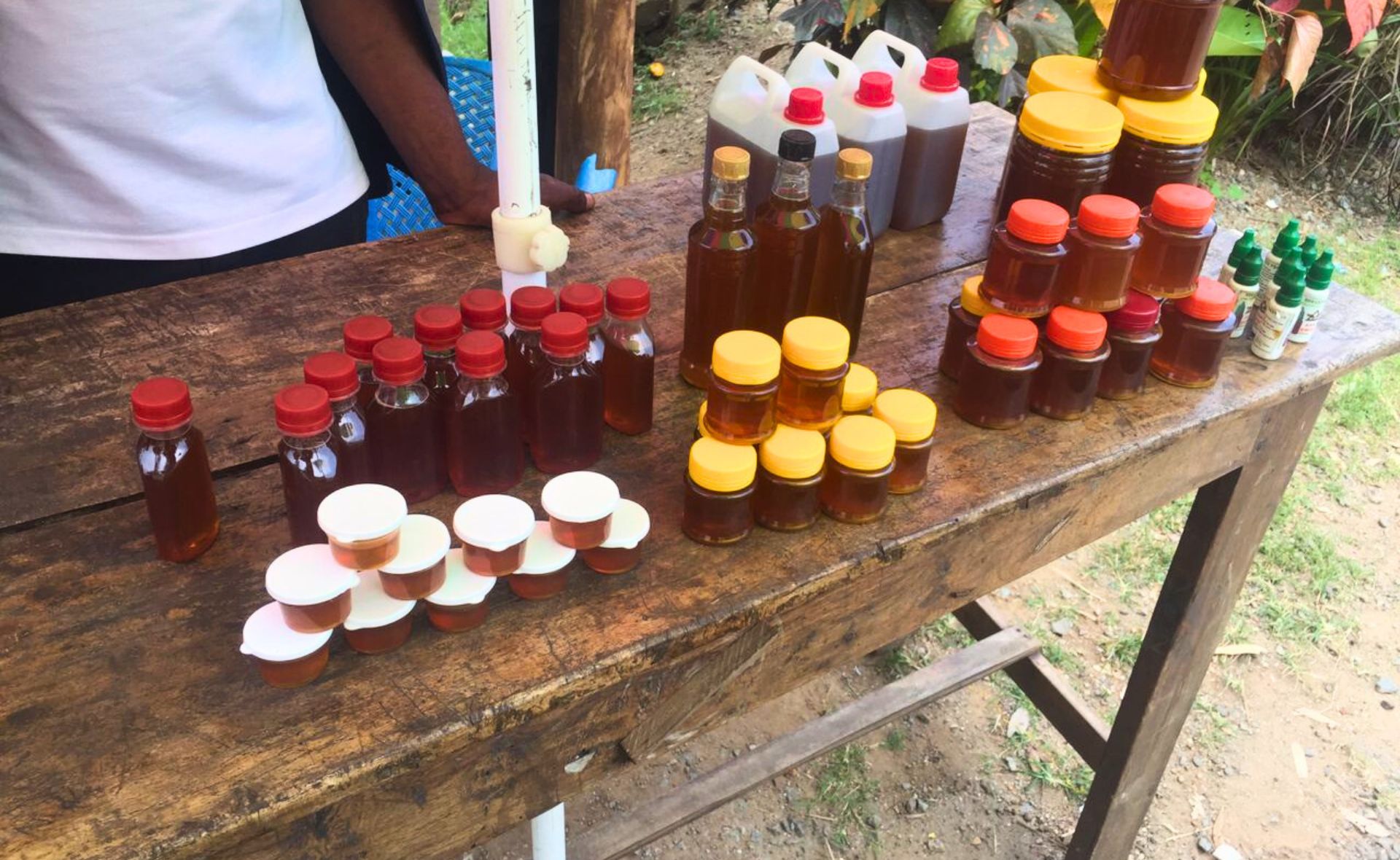
Kigoma Eco-Cultural Tourism (Kigoma, Tanzania)
Kigoma Eco-Cultural Tourism is a female-led, community-driven initiative in the Kigoma region of Tanzania that empowers women and youth through sustainable tourism, craft production, and environmental education.
The organization offers authentic experiences, including chimpanzee trekking in Gombe and Mahale National Parks, game drives in Katavi, African cuisine cooking, palm tree tours, traditional dance performances, quilt embroidery, Swahili beauty sessions, and historical tours of Ujiji and Liemba.
Visitors are also guided to engage with local communities, especially women, to experience culture firsthand and access locally made products. Situated along Lake Tanganyika, Kigoma Eco-Cultural Tourism provides immersive experiences such as swimming, canoeing, boat cruises, local fishing, and snorkelling.
The initiative currently engages 21 women who lead tours in palm tree exploration, cooking, traditional dance, quilt embroidery, and Swahili beauty experiences. Its mission is to provide sustainable, immersive eco-cultural tourism in Kigoma.
Learn more by visiting their website, Instagram, and Facebook.
The project they’ll be working on
“The Wanawake Project”
The Wanawake Project is an innovative initiative empowering women in Kalalangabo village, Kigoma District, through sustainable tourism development. The project aims to create economic opportunities for women while promoting environmental conservation and cultural preservation. It addresses gender disparities in access to education, employment, and entrepreneurial resources, which limit personal growth and contribute to wider community poverty. By integrating ecotourism with cultural and environmental initiatives, the project fosters inclusive community development and supports women as primary beneficiaries, enabling them to generate sustainable income and strengthen their role in the local economy.
Support for the project focuses on empowering women through sustainable tourism, creating economic opportunities, and promoting cultural and environmental stewardship.
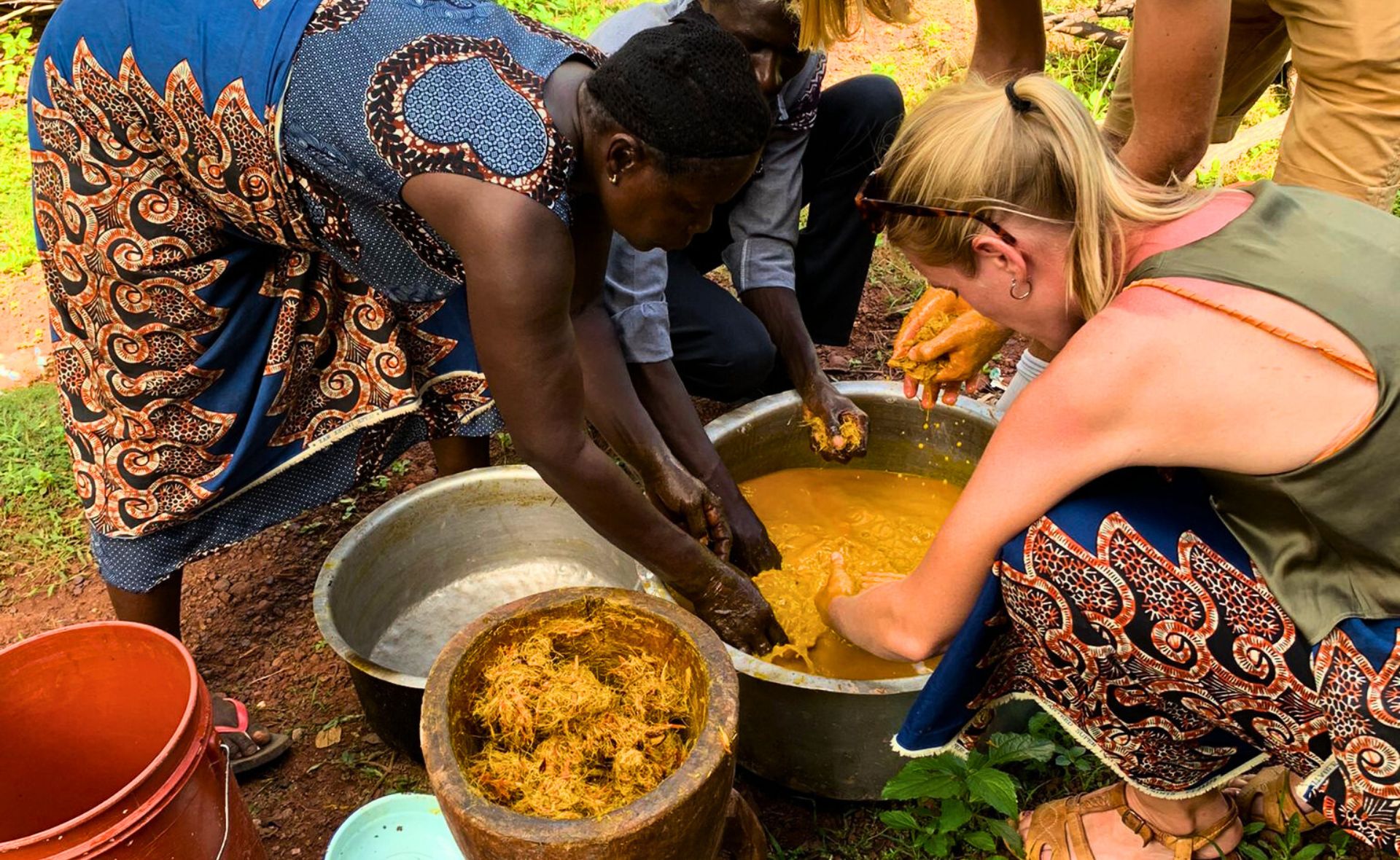
Funtasia for Training (Luxor, Egypt)
Funtasia Enterprise is a B Corporation delivering multidisciplinary educational content and curriculum focused on socio-emotional learning for youth and adults in both physical and online spaces.
The organization creates safe, welcoming environments that foster self-awareness, community engagement, and personal growth. Its hands-on, creative approach emphasizes self-expression, confidence, life skills development, and inclusivity.
The project they’ll be working on
“A Green Impact – Environmental and Community Empowerment for Children, Women and Youth”
A Green Impact in Luxor, Egypt, builds on the success of the Planeterra 2024 Grant to combine environmental education, women’s economic empowerment, and youth vocational training for lasting community impact.
The project engages children, women, and youth through tailored programs: children (ages 7–13) take part in interactive workshops using arts, games, and multimedia to learn about climate change, biodiversity, and conservation; women receive training in eco-friendly handicrafts such as pottery and cloth bag embroidery, creating opportunities for sustainable income; and youth (ages 16–18) improve their English skills to enhance engagement in ecotourism and future professional opportunities.
A Green Impact also strengthens local capacity by upgrading training infrastructure with multimedia tools and providing management and monitoring training for the project team. Implemented across West Bank, Habu Temple, Al-Bayrat village, and Qurna city, the initiative empowers children, women, and youth while promoting environmental conservation and sustainable economic development.
Beneficiaries include 30 children, 12 women, 12 youth, and 6 project team members.
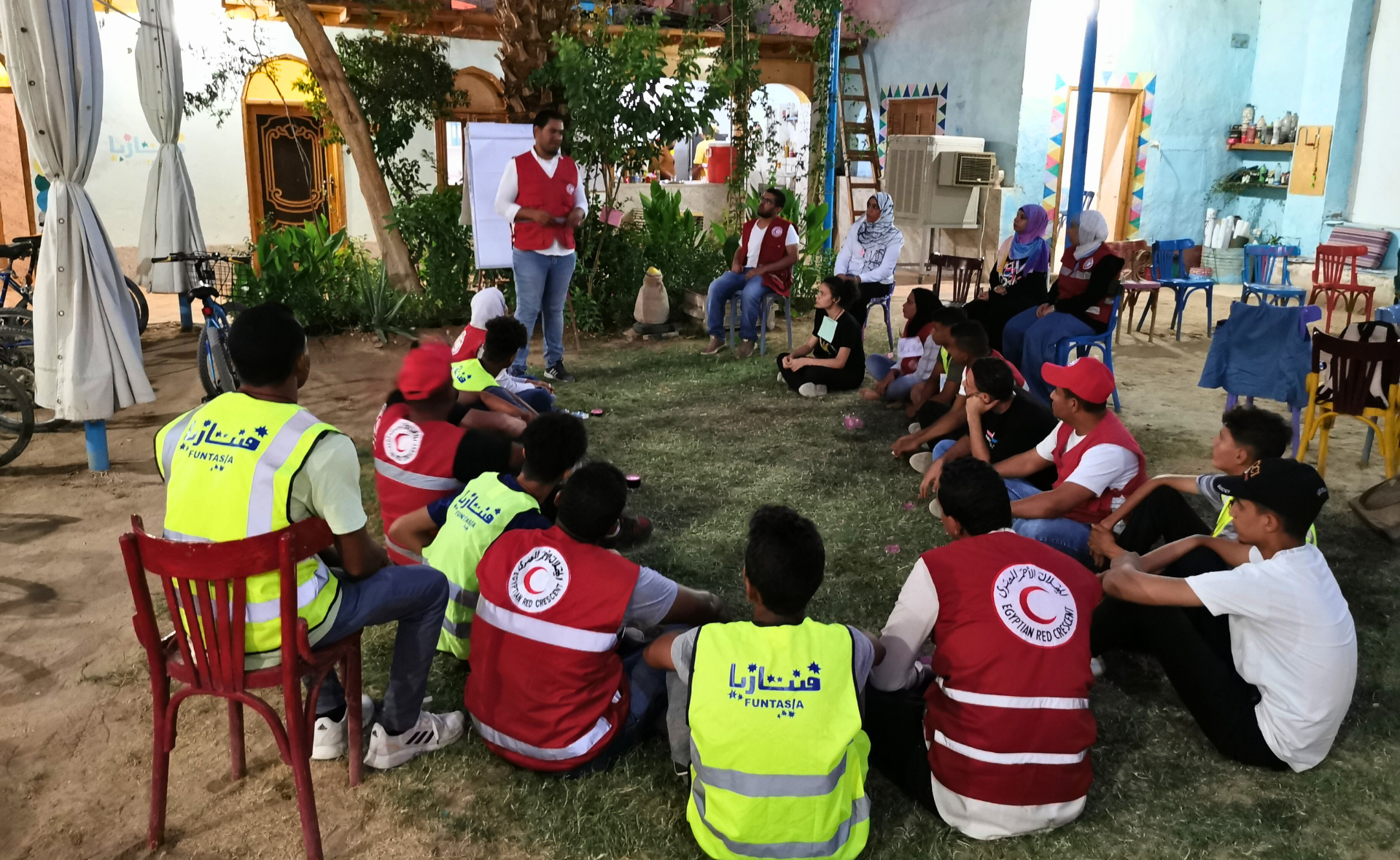
SEED (Mitchells Plain, Cape Town, South Africa)
SEED is a non-profit organization based in Mitchells Plain, Cape Town, focused on building resilient communities through environmental education, food security, and youth empowerment. Central to its work are permaculture gardens at the Rocklands Urban Abundance Centre, where community members and young people learn sustainable food-growing practices.
SEED integrates training, school programmes, and community outreach to promote local food systems and ecological awareness. Its farm-to-table tours provide immersive experiences in urban gardening, community resilience, and local culture, connecting visitors to the people and purpose behind every plant.
Through education and practical action, SEED supports communities in cultivating both food and lasting change
The project they’ll be working on
“SEED to Table”
SEED to Table is a community-based tourism and social enterprise project at SEED’s Rocklands Resilience Hub in Mitchells Plain, Cape Town. It transforms existing farm tours into immersive experiences where visitors explore permaculture gardens, food forests, eco-buildings, and appropriate technologies adapted to local conditions. The experience culminates in a seasonal, home-cooked meal from Marley’s Kitchen, an alumni-run enterprise using produce directly from the garden.
The project aims to formalize and grow SEED’s community tourism offering into a sustainable income source that supports environmental education, food production, and local livelihoods. Objectives include increasing garden productivity, expanding the on-site nursery, creating income opportunities for local staff, youth, and micro-enterprises, promoting awareness of urban permaculture and regenerative practices, and generating funds for SEED’s Outdoor Classroom and youth training programs.
By December 2025, the project expects strengthened garden infrastructure, enhanced nursery operations, a part-time garden manager to lead tours, new marketing materials, wider tour engagement, and revenue to sustain core education programs. SEED to Table addresses food insecurity and unemployment in Mitchells Plain while raising awareness about sustainable food systems and supporting youth and community resilience.
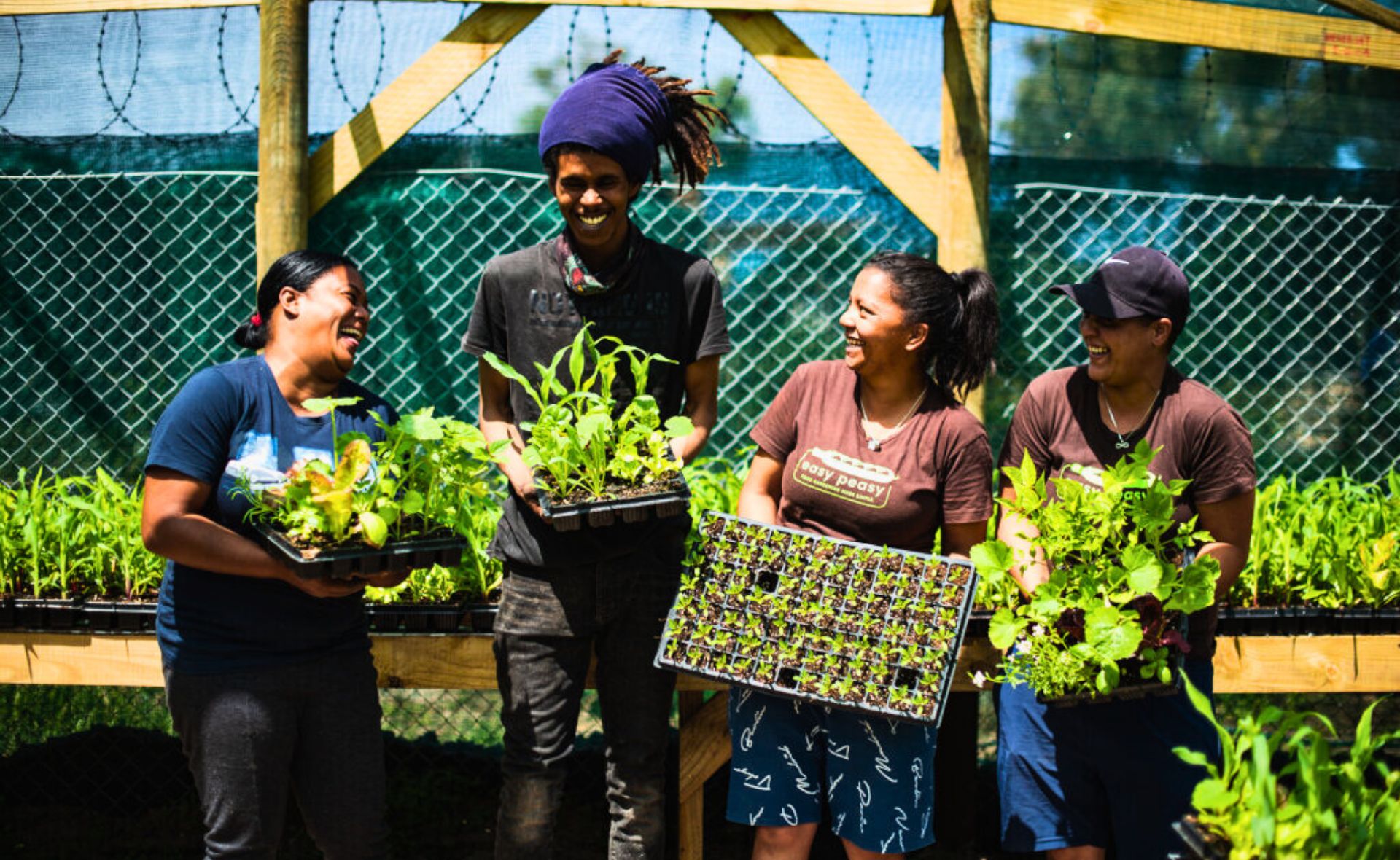
Nyamirambo Women’s Center (Kigali, Rwanda)
Nyamirambo Women’s Center (NWC) is a Rwandan NGO founded in 2007 by 18 women from Kigali’s Nyamirambo neighbourhood. It has grown into a vibrant community hub offering income-generating activities, skills training, and creative workshops producing sustainable handcrafted garments and accessories, alongside a hair braiding studio.
NWC also runs tourism experiences that showcase local culture and women’s entrepreneurship, including walking tours, Mount Kigali hikes, women-led electric motorbike city tours, and traditional Rwandan cooking classes.
Its mission is to provide education and vocational training to women with limited access to formal opportunities, enabling financial independence, self-confidence, and stronger, more inclusive communities through skills, storytelling, and sustainable tourism.
The project they’ll be working on
“Enhancing Safety on Mount Kigali and City Motorbike Tours Through First Aid Kit Provision”
The proposed project is a women-led initiative aimed at improving health and safety standards in Kigali’s community tourism sector. Local women, many previously unemployed, lead eco-friendly motorbike tours and serve as hiking guides on Mount Kigali, promoting sustainable tourism. Currently, they lack essential safety tools such as first aid kits, limiting their ability to respond to emergencies and provide secure experiences for visitors.
This project equips women tour guides and electric motorbike drivers with first aid kits and basic emergency response training, strengthening the safety, professionalism, and resilience of their services.
The initiative also supports greater confidence, credibility, and empowerment among women, while enhancing visitor experiences and increasing customer trust. By improving safety standards, the project is expected to attract more tourists, generate higher bookings, and contribute to sustainable economic growth in the community.
Additionally, promoting the use of electric motorbikes reduces the carbon footprint of Kigali’s tourism sector, aligning with eco-friendly practices. In the short term, all participating women will have access to fully stocked first aid kits, receive emergency training, and deliver safer, more professional tours.
This will result in improved customer satisfaction, increased bookings, and stronger representation of women in Kigali’s sustainable tourism market, fostering long-term community and economic benefits.
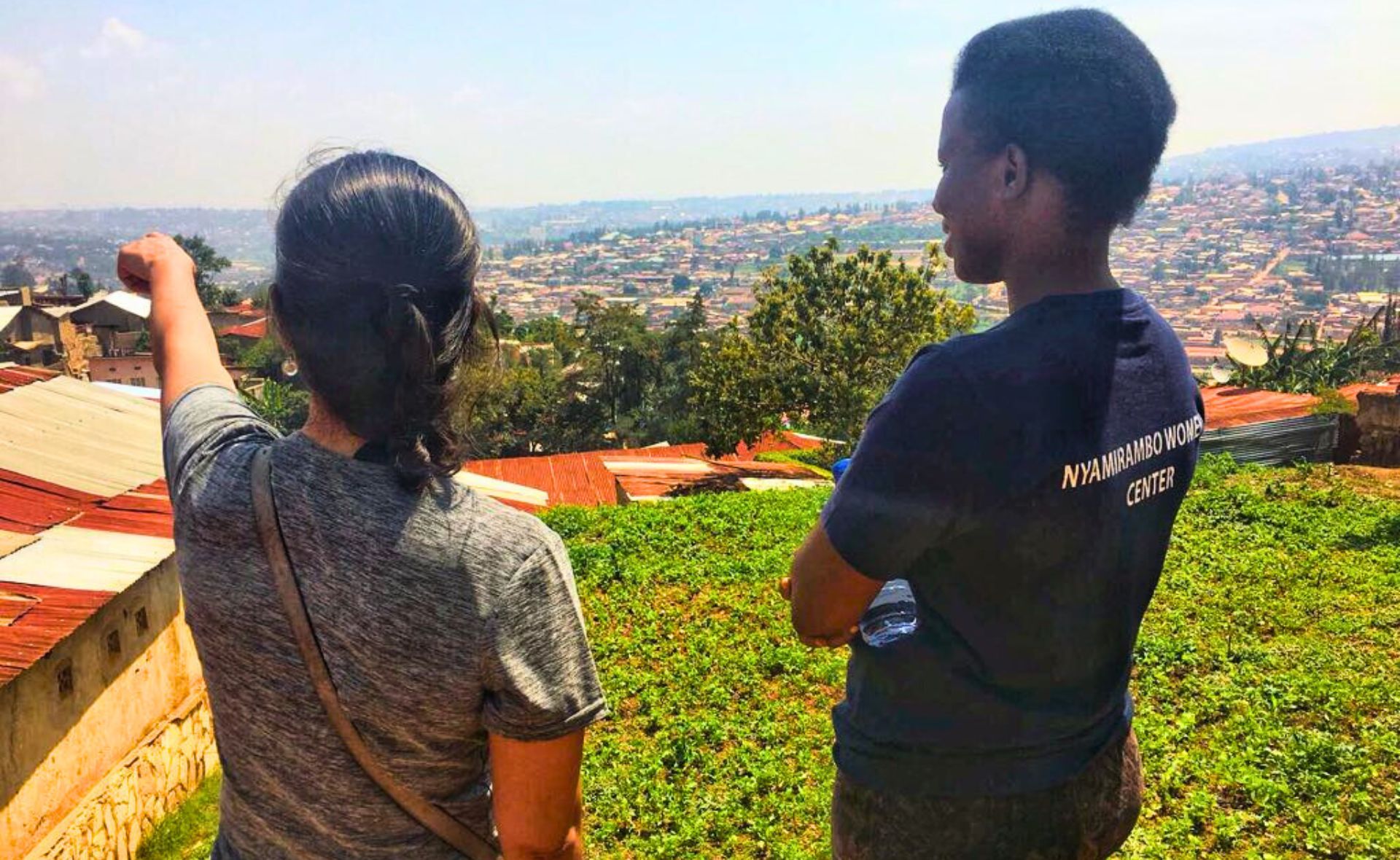
Europe
Nexes Interculturals SCCL (Barcelona, Spain)
Nexes Interculturals SCCL, a non-profit cooperative based in Barcelona, has been dedicated to intercultural education and social transformation since 1999. It leads the Migrantour Barcelona project, part of a European network that uses tourism to highlight the cultures and stories of migrants and refugees. Currently, 15 migrant individuals serve as intercultural guides and lead this initiative.
Nexes works locally and internationally, building networks among organizations, youth, and communities to promote social justice, equal opportunities, and sustainable development.
The project they’ll be working on
“Migrantour Barcelona: Discover the Invisible Richness of the City”
Migrantour Barcelona invites participants to explore the city beyond traditional tourist narratives, revealing its hidden cultural richness through the stories of its migrant communities. Part of the global Migrantour network, active in over 20 European cities, the project promotes responsible, community-based tourism that fosters intercultural dialogue, combats discrimination, and highlights migration experiences.
Since 2021, Nexes Interculturals SCCL, a nonprofit with 25 years of experience in education, community work, and global justice, coordinates the project. Using participatory and inclusive methodologies, Migrantour Barcelona operates in neighborhoods such as Raval and Poble-sec, transforming stigmatized areas into spaces of memory, encounter, and identity. It addresses themes like human rights, racism, neocolonialism, invisible voices, social economy, and community empowerment.
The project benefits two main groups. Migrant women from Latin America, Africa, and Asia are trained as intercultural guides, gaining skills in storytelling, local history, human rights, and group facilitation, while building professional opportunities and social recognition.
Tour participants, including students, NGOs, civic groups, companies, and tourists, experience a nuanced vision of Barcelona, encouraging intercultural dialogue and breaking down stereotypes.
Through guide training, updated routes, inclusive tour packages, and subsidized tours, Migrantour Barcelona fosters social awareness, inclusion, and sustainable local development, contributing to a more just, cohesive, and culturally vibrant city.
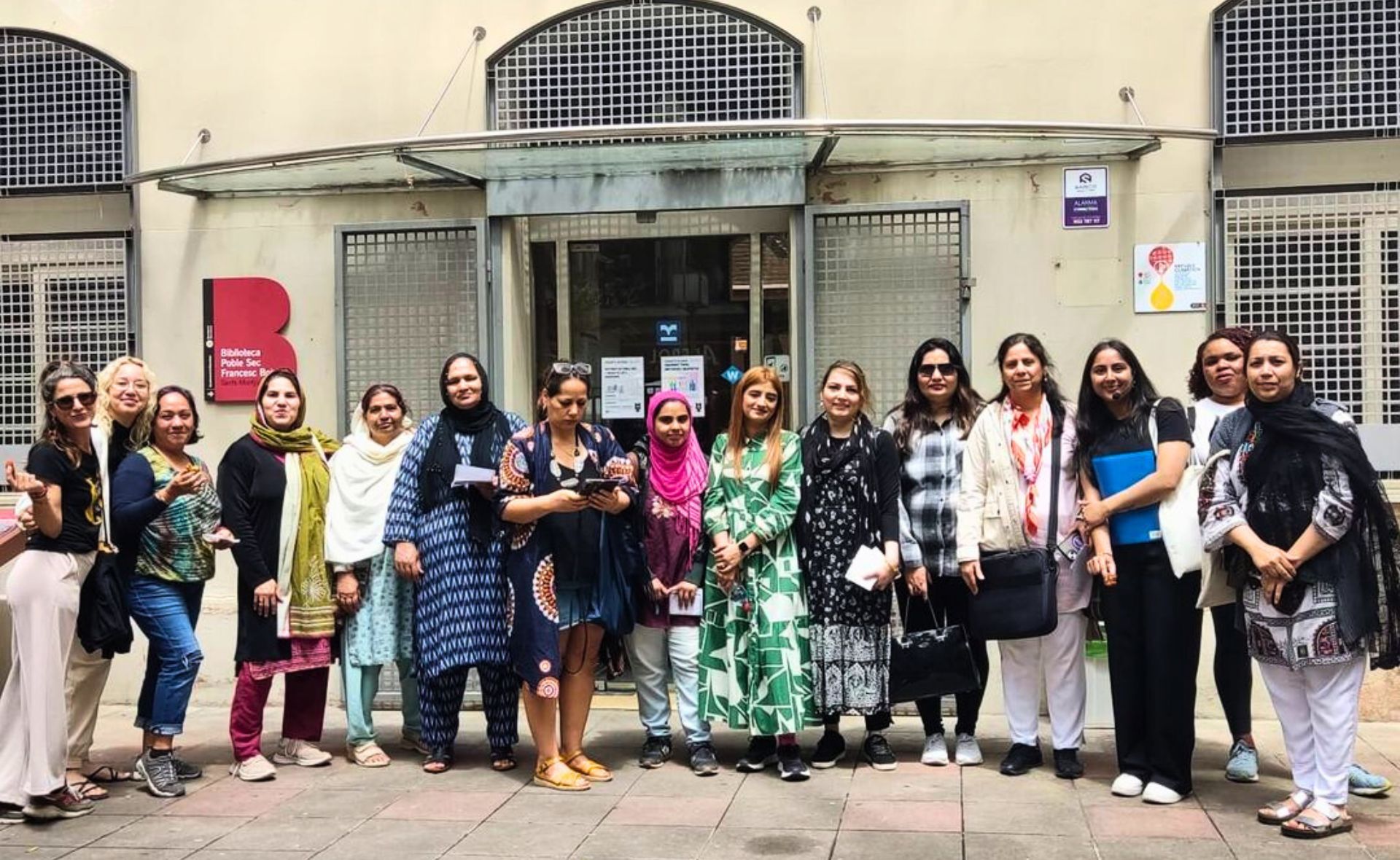
Unseen Tours (London, UK)
Unseen Tours is a social enterprise that empowers people with lived experience of homelessness to develop and lead guided walks in London neighbourhoods. By sharing their personal stories, guides offer unique perspectives on the city, highlighting its hidden treasures while providing paid employment, skill development, confidence, and social inclusion.
Tours explore history, architecture, arts, and multiculturalism across areas including King’s Cross, London Bridge, Brixton, West India Quay, Westminster, and Canning Town.
The project they’ll be working on
“Tastes of Migration – A Journey Through Flavours and Stories”
Tastes of Migration is a pilot food tour in Soho and Covent Garden, London, celebrating the city’s rich food culture while highlighting the contributions of refugee entrepreneurs. The project explores migration and homelessness through lived experience, offering participants authentic, co-designed stories of resilience and community.
The project involves researching route feasibility, developing an initial itinerary and tour script, and recruiting a refugee guide. The selected guide receives hands-on training by shadowing experienced Unseen Tours guides, learning group management, health and safety, research, and storytelling, with a focus on confidence-building and the safe, respectful sharing of personal experiences.
Beneficiaries include the guide, who gains paid work, skills, and social inclusion; refugee and migrant food entrepreneurs featured on the tour; and participants, who engage with the city’s multicultural stories in a meaningful way.
The project aims to establish a sustainable tourism experience that empowers refugees as cultural contributors and entrepreneurs while generating income and visibility for all involved. Through thoughtfully designed routes and immersive storytelling, “Tastes of Migration” promotes inclusive, responsible tourism that blends cultural engagement with economic opportunity.
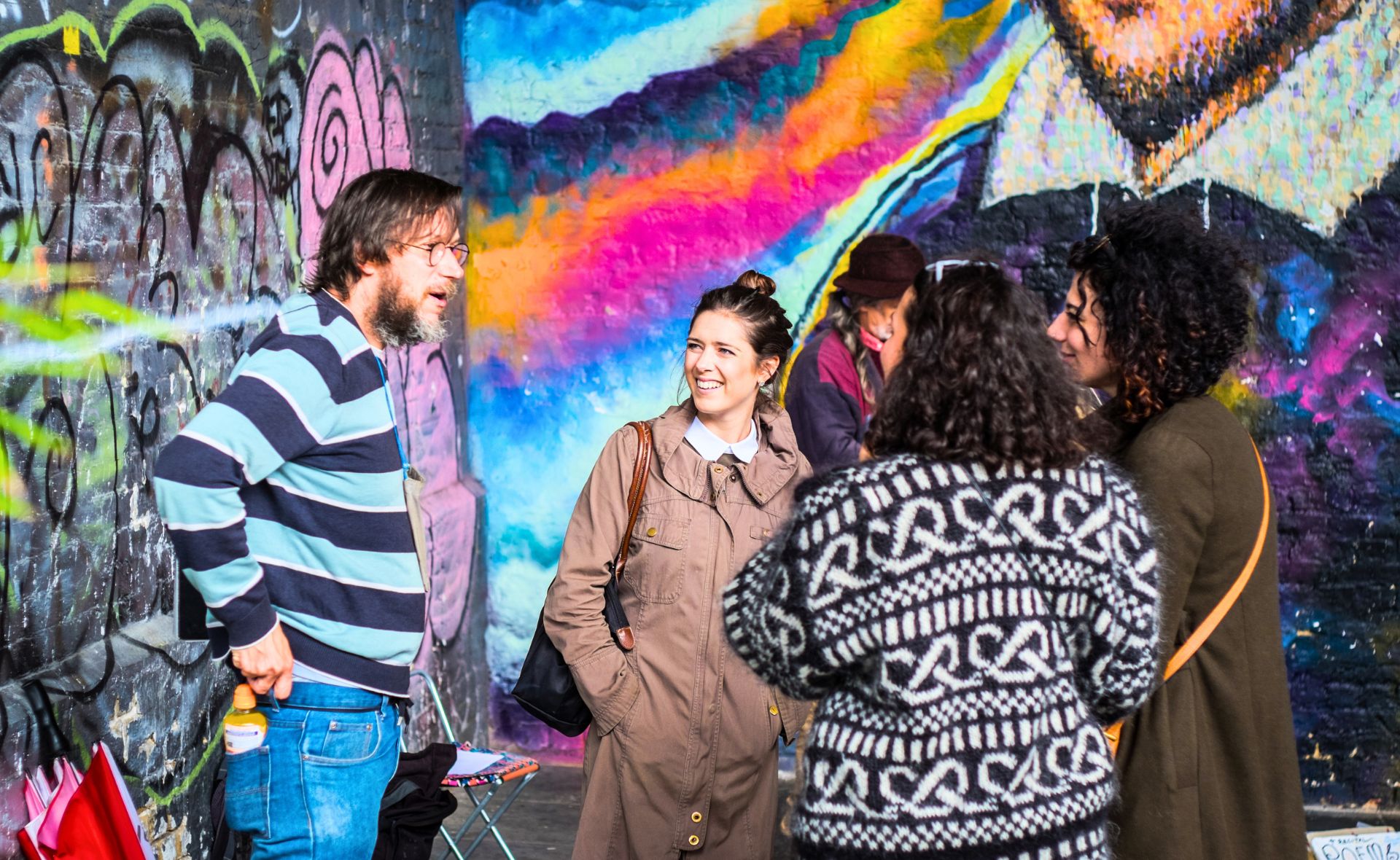
Americas
Centro Ecoturistico Carey (Isla Arena, Campeche, Mexico)
Centro Ecoturístico Carey was founded in 2005 by young members of the Isla Arena community in Campeche, Mexico, who sought to use ecotourism to protect the natural resources of the Petenes Biosphere Reserve and Celestún Lagoon.
Today, the community museum, AAK Museum, preserves and shares Isla Arena’s Maya history and culture. It offers an educational and cultural space where visitors can explore Maya identity, local biodiversity, and the region’s history.
The project they’ll be working on
“Museo AAK Museum”
The AAK Community Museum in Isla Arena offers a unique cultural ecotourism experience, combining Maya heritage preservation, environmental education on local biodiversity, and community-driven economic opportunities for youth and adults.
As a grassroots initiative, it empowers residents by recovering collective memory, valuing local territory, and protecting endemic species such as flamingos, mangroves, and hummingbirds.
The museum’s first exhibition, currently under construction, will showcase local history, oral traditions, endemic biodiversity, and the Maya worldview through guided tours by trained community youth, multilingual visual materials, and interactive activities for all ages. Support focuses on completing the construction and developing the inaugural exhibit.
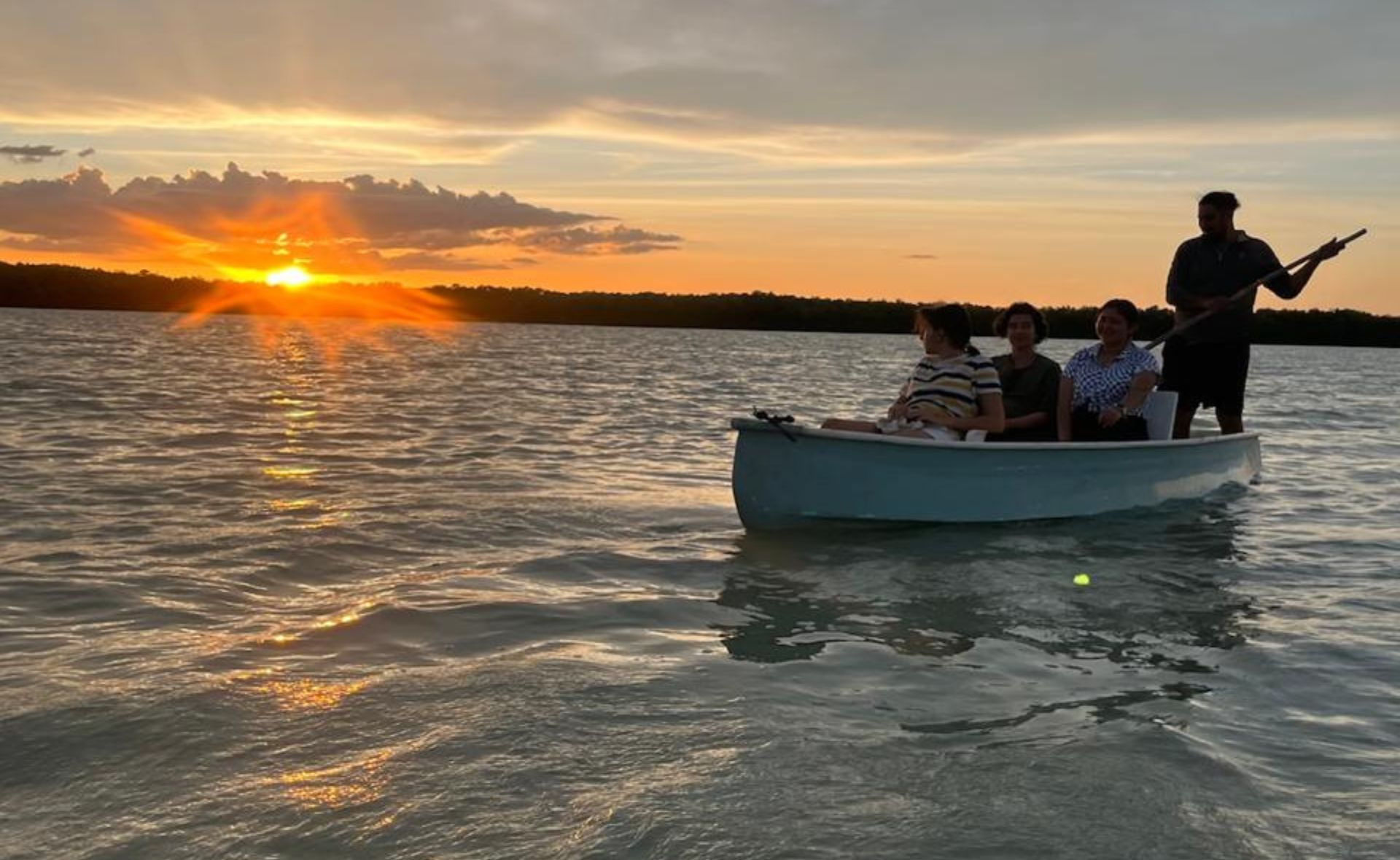
Asociación de Turismo Rural Solidario, ASTURS, PERÚ (Capachica Peninsula, Puno, Peru)
Asociación de Turismo Rural Solidario is a non-profit organization that promotes sustainable development and capacity building for its partners. Asturs is made up of families dedicated to community tourism across nine communities around Lake Titicaca.
The project they’ll be working on
“Improvement and innovation of the tourism offerings of Indigenous families from ASTURS in the Capachica Peninsula, Puno, Peru”
In the Capachica Peninsula of Puno, Peru, Indigenous families are transforming experiential tourism on Lake Titicaca by offering visitors a unique journey into the highlands’ ancestral traditions. The project introduces the “Ancestral Plants Tour,” where guests discover native herbs like qantu, muña, chijchipa, ayrampu, and chiri chiri, learning about their sacred, medicinal, and culinary uses. Visitors can touch, smell, and taste the plants, participate in traditional harvesting and drying processes, and hear the stories and knowledge passed down through generations.
The initiative empowers local families by providing training in post-harvest techniques, conservation, packaging, branding, and marketing, creating new income opportunities while preserving cultural heritage. Workshops also highlight ancestral knowledge and promote food sovereignty, with particular emphasis on fostering women’s leadership in the community. To ensure visitor safety at the high-altitude communities, where the effects of elevation can be challenging, oxygen tanks are made available as emergency support.
Through this project, families are strengthening their tourism offerings, sharing the richness of their culture and ecosystem, and creating memorable, authentic experiences that connect visitors to the traditions and biodiversity of the Andes.
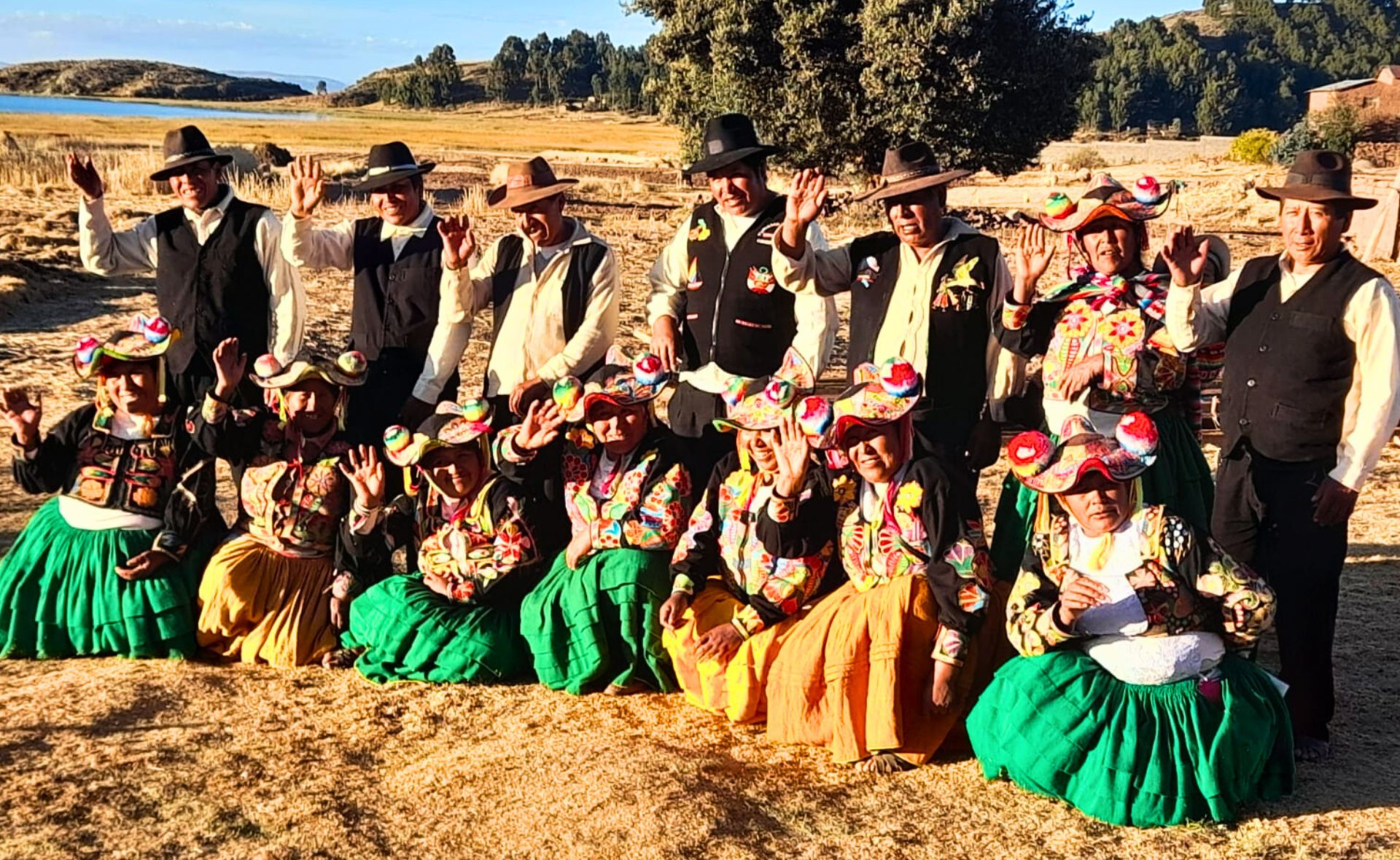
Asociación Comunal de Turismo, Cultura y Medio Ambiente de Leymebamba (Leymebamba – Chachapoyas, Amazonas, Peru)
Founded in 2019 and recognized in the Community Tourism Database of MINCETUR-Peru since 2023, the association brings together 34 partners and 18 productive units, 61% of them led by women. Its mission is to preserve and promote the cultural and natural heritage of Leymebamba.
Visitors can explore artisan workshops, dairy processing facilities, the Iglesia de Piedra, ethnobotanical gardens, and historic mansions, as well as hike to archaeological sites and the Laguna de los Cóndores in ACP Los Chilchos, complemented by a visit to the Leymebamba Museum.
The association has received the Safe Travels label (2021), hosts the Mundo Chachapoyas brand, and was recognized among the best tourist towns in the world by the UN World Tourism Organization (2024). Since 2024, it has been an Impact Partner of the Global Community Tourism Network and collaborates with various public and private institutions.
The project they’ll be working on
“Improvement and innovation of the tourism offerings of Indigenous families from ASTURS in the Capachica Peninsula, Puno, Peru”
In the Capachica Peninsula of Puno, Peru, Indigenous families are transforming experiential tourism on Lake Titicaca by offering visitors a unique journey into the highlands’ ancestral traditions. The project introduces the “Ancestral Plants Tour,” where guests discover native herbs like qantu, muña, chijchipa, ayrampu, and chiri chiri, learning about their sacred, medicinal, and culinary uses. Visitors can touch, smell, and taste the plants, participate in traditional harvesting and drying processes, and hear the stories and knowledge passed down through generations.
The initiative empowers local families by providing training in post-harvest techniques, conservation, packaging, branding, and marketing, creating new income opportunities while preserving cultural heritage. Workshops also highlight ancestral knowledge and promote food sovereignty, with particular emphasis on fostering women’s leadership in the community. To ensure visitor safety at the high-altitude communities, where the effects of elevation can be challenging, oxygen tanks are made available as emergency support.
Through this project, families are strengthening their tourism offerings, sharing the richness of their culture and ecosystem, and creating memorable, authentic experiences that connect visitors to the traditions and biodiversity of the Andes.
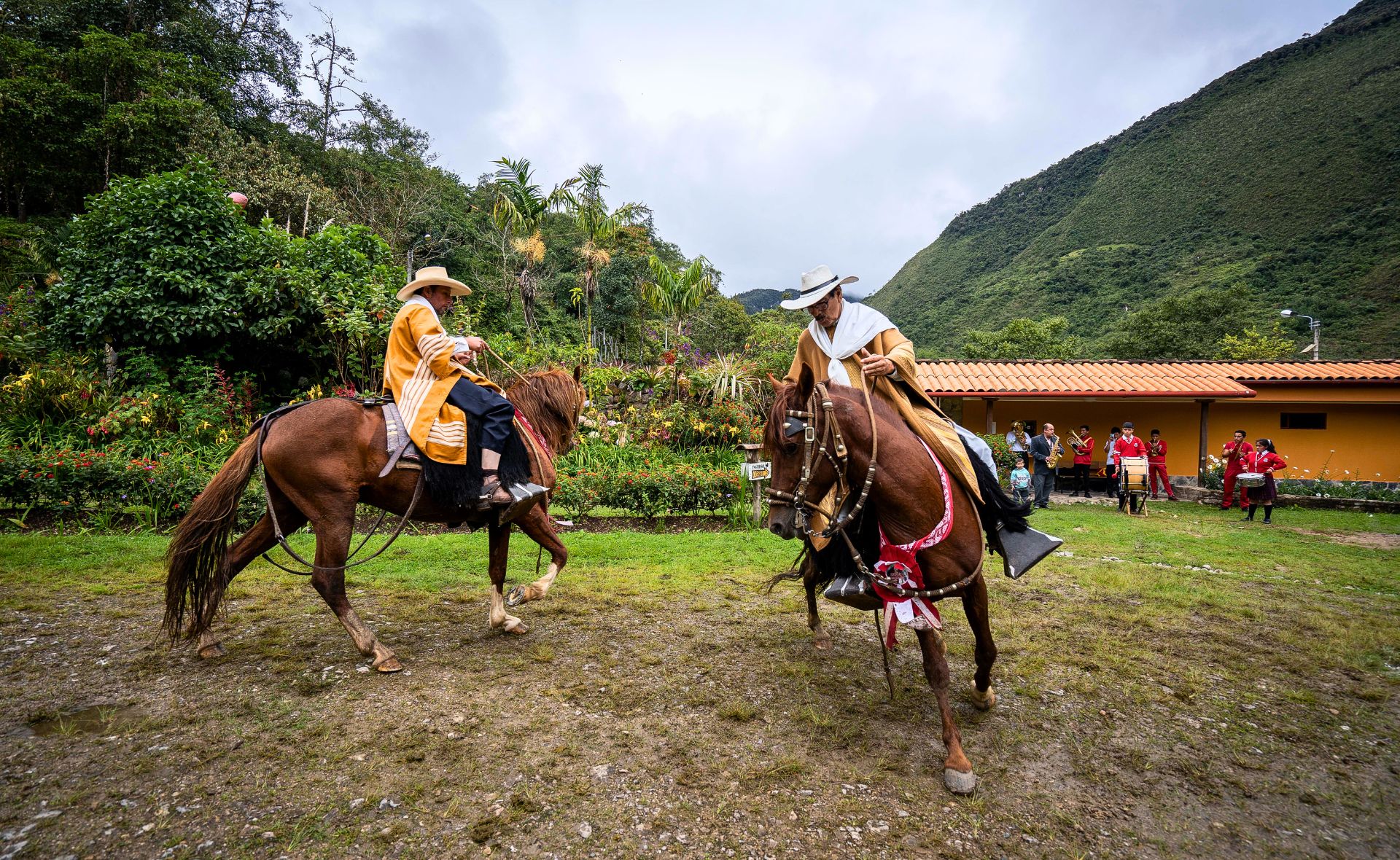
Cooperativa de Agroturismo Red de Turismo Campesino Limitada (San Carlos, provincia de Salta, Argentina)
Red de Turismo Campesino is a cooperative of 25 rural and Indigenous families dedicated to community-based tourism in Argentina. Founded in 2004, the cooperative offers immersive stays, traditional cuisine, outdoor activities, and guided tours that promote intercultural exchange and respect for local traditions.
Participating families produce artisanal goods, including wool textiles, pottery, preserves, wine, spices, and herbal remedies. Lodging is provided in family homes constructed with sustainable local materials such as adobe and wood, ensuring minimal environmental impact and an authentic cultural experience.
The project they’ll be working on
“Growing is Advancing”
The project aims to strengthen the commercial presence of the cooperative’s handmade products and promote its community-based tourism services in San Carlos, Valle Calchaquí, Salta. Key initiatives include improving product presentation through updated packaging, signage, and labels; providing infrastructure such as a gazebo and display tables for fairs; and updating the cooperative’s website with new photos and videos.
These efforts directly benefit 25 cooperative families, many of them women, by increasing sales, enhancing product visibility, and creating new market opportunities. Indirectly, the project supports the broader community network by boosting local tourism and showcasing traditional artisanal production.
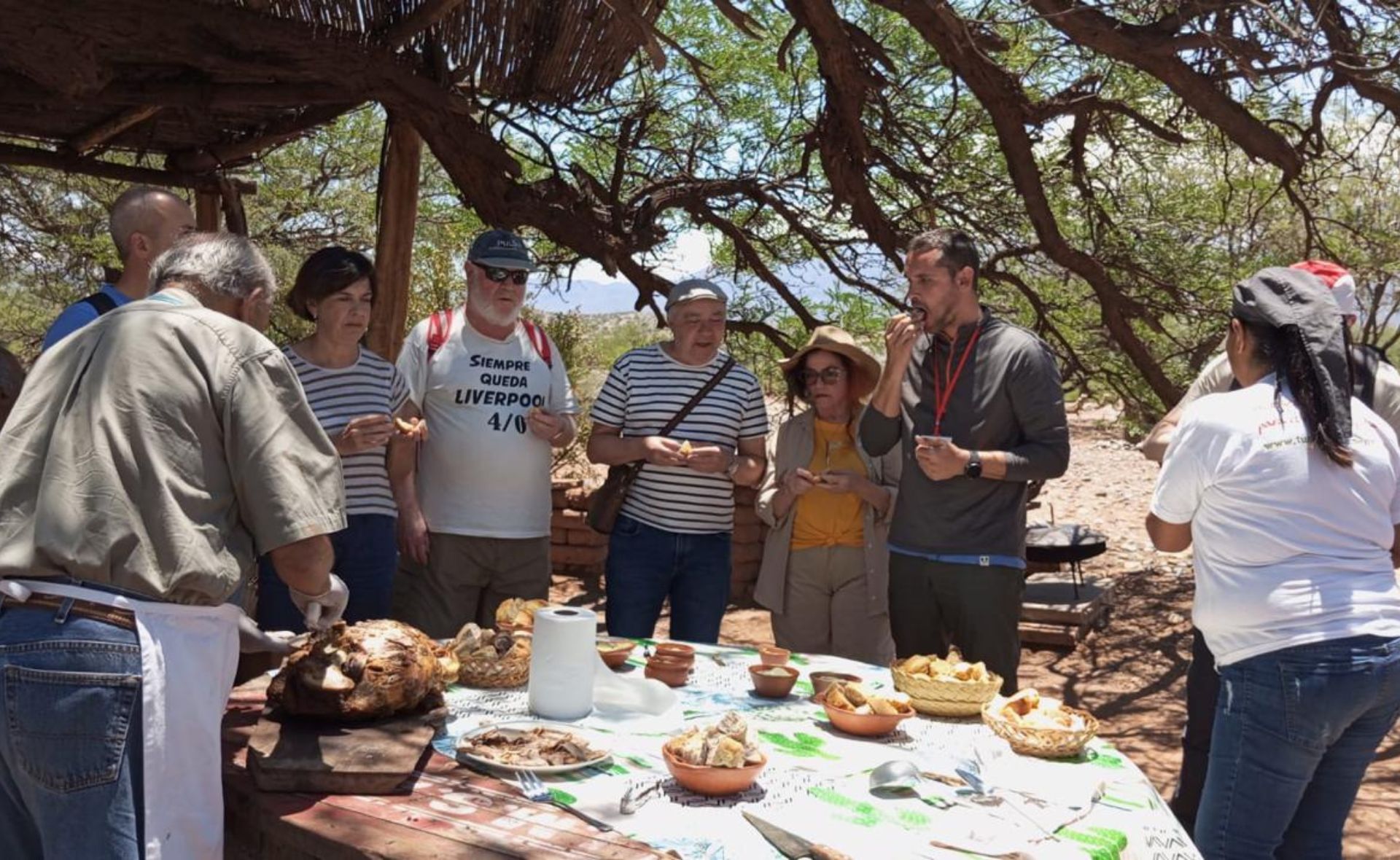
Ecoturismo comunitario Villa Amboró (Villa Amboro, Santa Cruz, Bolivia)
Villa Amboró is a community-run ecotourism initiative in the Bolivian highlands, about 150 km from Santa Cruz de la Sierra. It features interpretive forest trails leading to viewpoints, waterfalls, caves, and diverse wildlife.
Visitors can enjoy local cuisine prepared with fresh, community-grown ingredients and stay in rustic cabins constructed from native materials. Community members serve as guides, offering 1–3 day tours for up to 25 guests.
Transportation is available from Buenavista or Santa Cruz, though access during the rainy season may require 4×4 vehicles. The experience promotes environmental education, cultural exchange, and sustainable income for rural families.
Learn more on Facebook.
The project they’ll be working on
“Improvement of the infrastructure of the Villa Amboró community lodge”
Villa Amboró, a community-run eco-lodge in the highlands of Santa Cruz, Bolivia, offers visitors an immersive nature experience with rustic cabins, local cuisine, and guided tours of forest trails, waterfalls, caves, and wildlife. To enhance this experience, the community is undertaking essential infrastructure improvements focused on the lodge’s guest rooms, common lounge, and bathrooms.
The lodge is built with local materials, including durable quina wood columns, walls of various softwoods, ceramic floors, and traditional thatched roofs made from jatata. The upgrades will replace worn roofing, reinforce structural elements, and remodel floors and walls, creating a safer, cleaner, and more welcoming environment for guests.
These improvements will strengthen the community’s ability to host eco-tourists, supporting sustainable livelihoods for 14 families directly and 49 families indirectly, while preserving the surrounding environment. Visitors will enjoy a higher-quality stay that combines comfort, cultural authenticity, and a low-impact connection with nature.
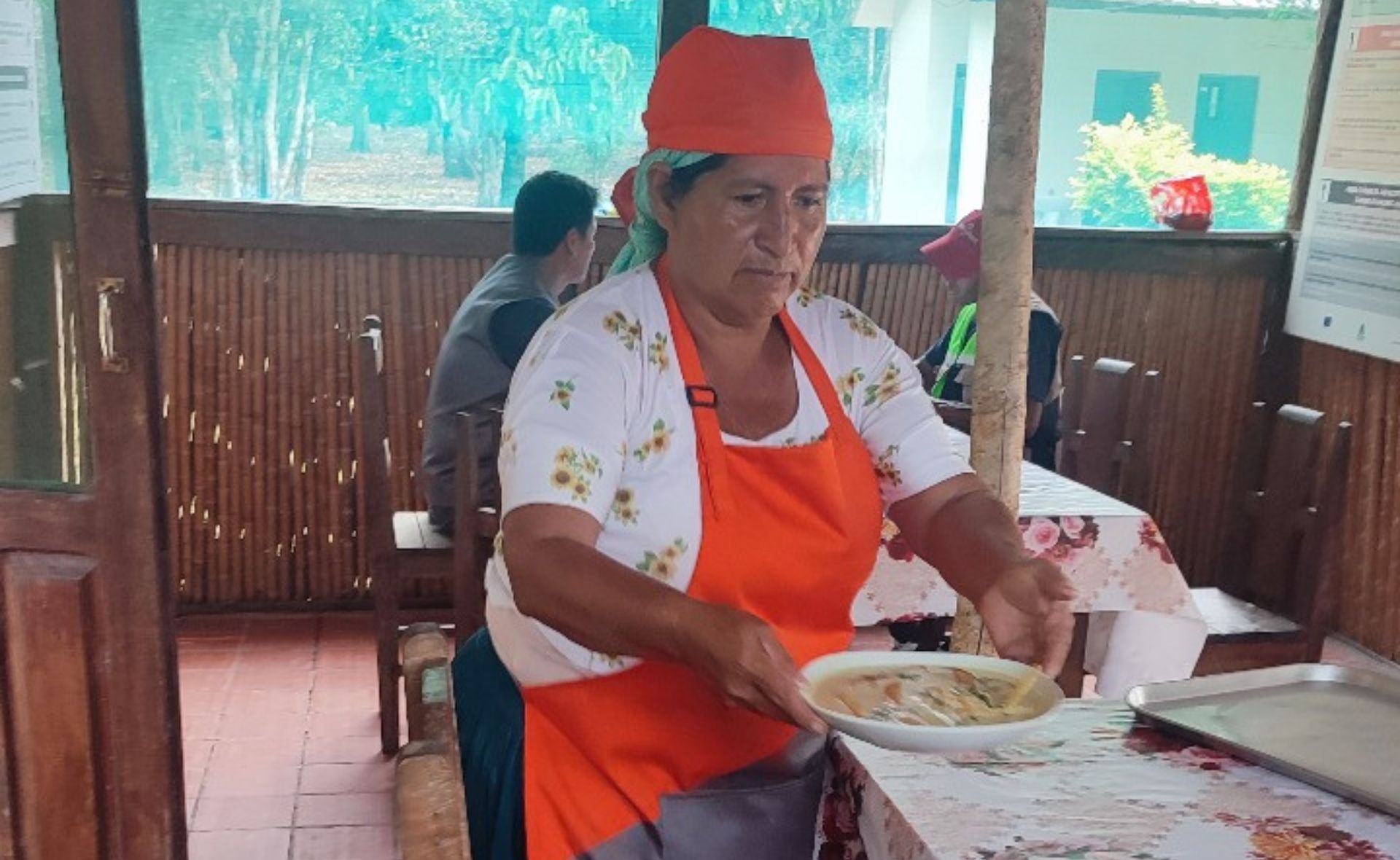
Stibrawpa (Yorkin Community, Telire, Talamanca, Costa Rica)
The STIBRAWPA Association of Artisans of Yorkín is a non-profit organization founded by Bribri Indigenous women in 1992. Its mission is to improve the lives of families in the Yorkín community, promote a sustainable economy for their benefit, strengthen Bribri culture, and conserve the forests, rivers, and biodiversity of the Yorkín River basin.
STIBRAWPA brings together 42 families, primarily of Bribri and Naso origin, who collectively manage around 360 hectares of primary and secondary forest.
The project they’ll be working on
“Sá di kianá: Ready, sufficient, clean, and safe water!”
The project aims to complete the final stage of a water supply system for the community-run tourism facilities of the STIBRAWPA Association in Yorkín, Bribri Indigenous territory, Telire, Talamanca, Costa Rica. In late 2023 and early 2024, families observed a decrease in potable water supply, partly due to nearby livestock and possible deforestation, which threatened their main source of income: cultural tourism and eco-friendly cocoa and banana production.
Launched in October 2024 with support from the Planeterra Foundation and Amigos de Costa Rica, the project involves identifying a reliable water source, purchasing materials, and community-led construction. Key activities include building a reinforced slope for the tank, installing the tank, and channeling water to the community’s kitchen and Casa Verde lodge. An elevated structure will allow water to cross the Tscui River safely.
The project also lays the groundwork for future expansion of the water system to additional facilities, ensuring a secure and sustainable water supply for tourism operations and the broader community. Its main goal is to strengthen the community’s tourism services while safeguarding their livelihoods.
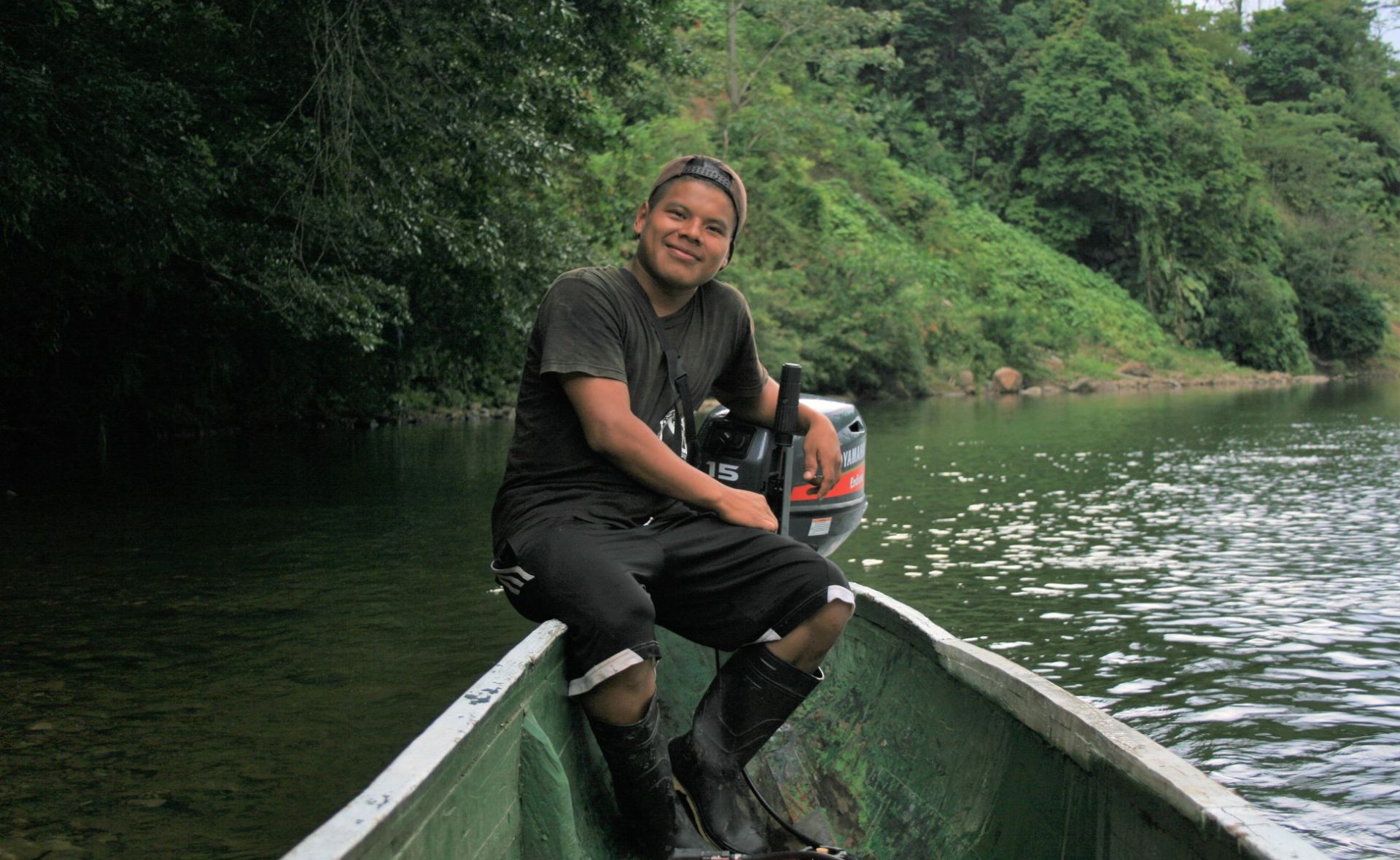
Asociación de Prosumidores Agroecológicos- Agrosolidaria Seccional (Charalá, Colombia)
An association of rural producers and consumers who have developed “LA RUTA DEL ROBLE” as a cultural and community ecotourism initiative. This strategy allows them to manage their territory sustainably and in harmony with natural spaces, local customs, and the way of life of its inhabitants.
Through these activities, they promote the common good and create opportunities for a dignified life for the community members.
Learn more on Instagram.
The project they’ll be working on
“Natural construction at Ecofinca Las Villas, a “I Am a Farmer” visit point on La Ruta del Roble”
La Ruta del Roble is Agrosolidaria Charalá’s community tourism initiative, connecting five municipalities through 12 sites that invite visitors to “discover the secrets of the oak forests.” This project takes place at Ecofinca Las Villas in Vereda La Hoya, Coromoro, home to 160 farming families who cultivate coffee, plantains, citrus, and home gardens, contributing to regional food sustainability.
The project involves constructing a two-person cabin with a private bathroom at Ecofinca Las Villas, separate from the owners’ residence, providing visitors with an immersive, sustainable lodging experience.
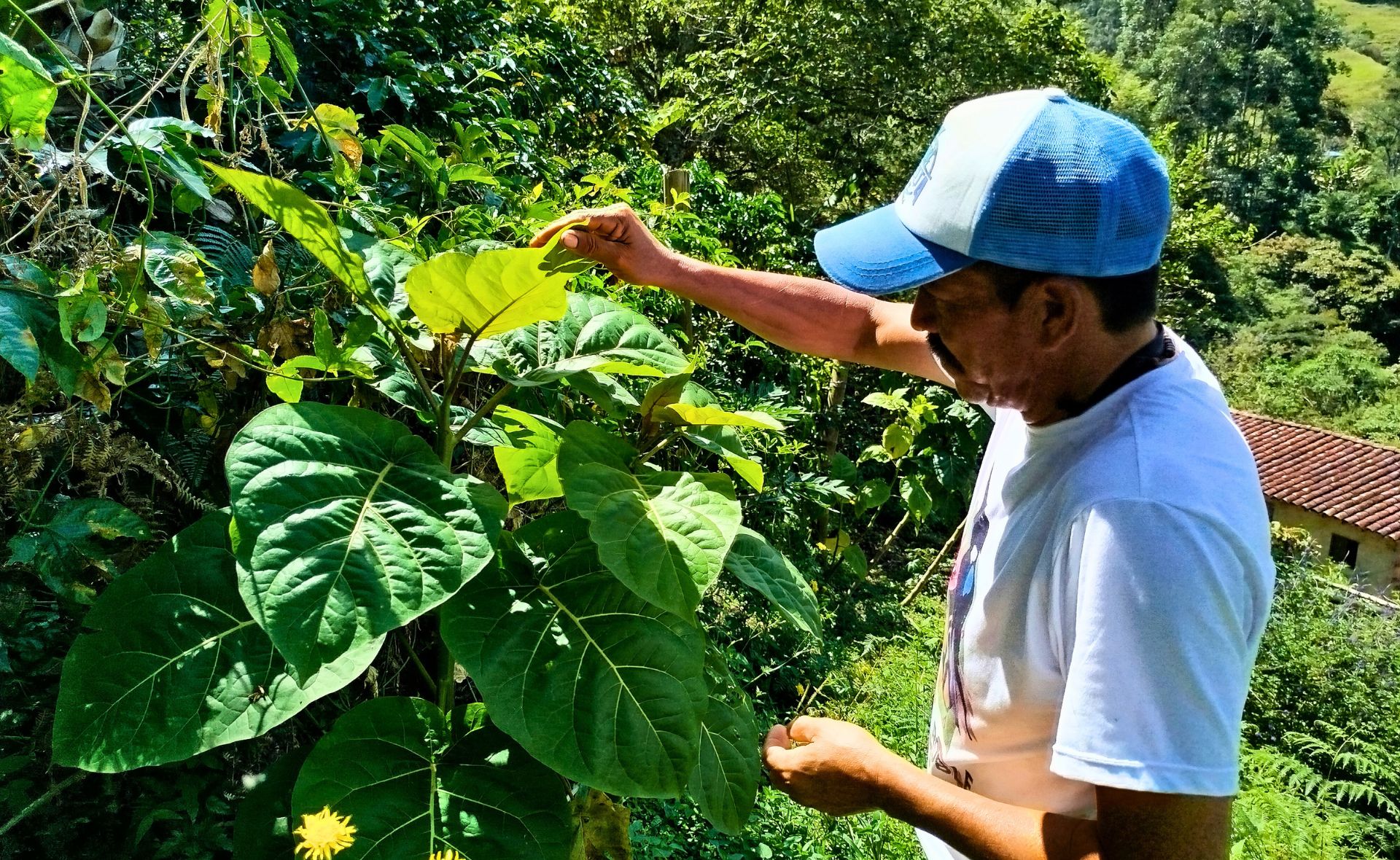
Zaaz Koolen Ha (Yokdzonot, Yucatán, Mexico)
Zaaz Koolen Ha is a community tourism cooperative in Yokdzonot, a village located along the Mérida–Cancún highway. Its main attraction is a cenote managed primarily by women of Maya origin.
In 2005, a group of visionary women, together with their partners, united around a shared goal: to restore the Yokdzonot cenote, which had sadly been reduced to a village dumpsite. This ecotourism initiative not only transformed a neglected space into a thriving destination but also redefined the role of women within the community.
The project they’ll be working on
“Yokdzonot Handcrafts House”
In Yucatán, the artisan craft market is often controlled by resellers who buy products at low prices and sell them at a significant markup, leaving local producers with little profit. In Yaxcabá, years of collaboration between the Autonomous University of Yucatán and Maya artisans have focused on improving and standardizing product quality.
This project will strengthen market opportunities for at least 10 women artisans from the region by establishing a dedicated sales point at the popular Yokdzonot ecotourism stop. The artisans will also receive training in community tourism marketing strategies, empowering them to sell directly to visitors and increase their earnings.
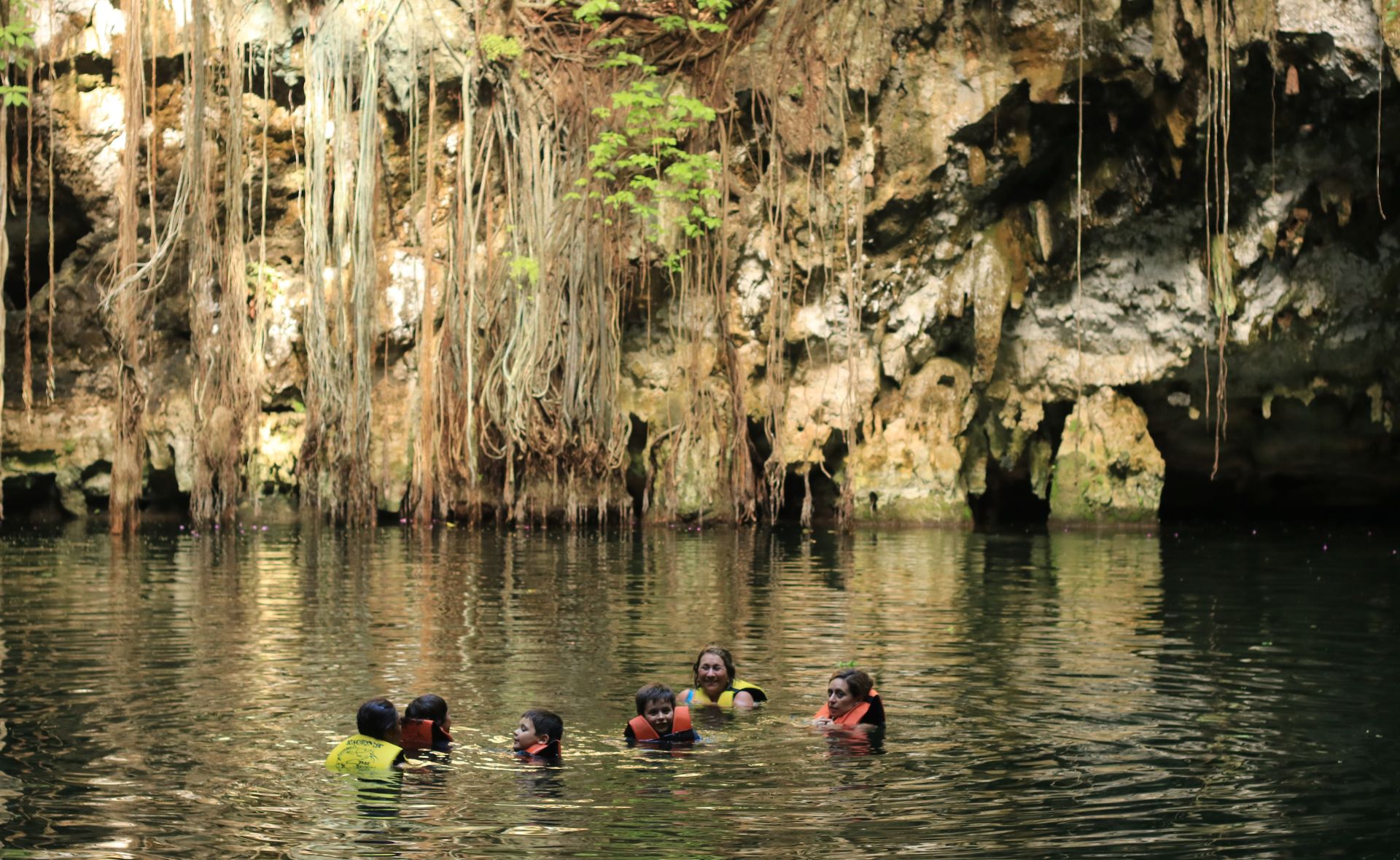
Ronda Cultural ONG (Buenos Aires, Argentina)
Ronda Cultural is a community-based civil association in Buenos Aires that promotes the right to cultural participation through guided walking tours. Their routes blend heritage, history, arts, environment, and public spaces with participatory activities, artistic interventions, visits to cultural institutions, and interpretation in Argentine Sign Language (LSA).
The initiative engages youth, people with disabilities, students, tourists, and grassroots organizations to create inclusive and accessible cultural experiences. Their work strengthens social ties, democratizes knowledge, and fosters sustainable connections between people and their urban environment.
The project they’ll be working on
“Green city, how I love you green”
Ciudad verde, que te quiero verde is a Ronda Cultural initiative that integrates an environmental perspective into guided tours of Buenos Aires. The project emphasizes the crucial role of green spaces in building fair, resilient, and sustainable cities, addressing their scarcity and unequal distribution in the city.
Through accessible tours combining environmental and cultural interpretation, it aims to promote environmental awareness, support equitable access to green spaces, create jobs for youth and guides, strengthen ties with grassroots organizations, and position urban green spaces as inclusive hubs for sustainable tourism.
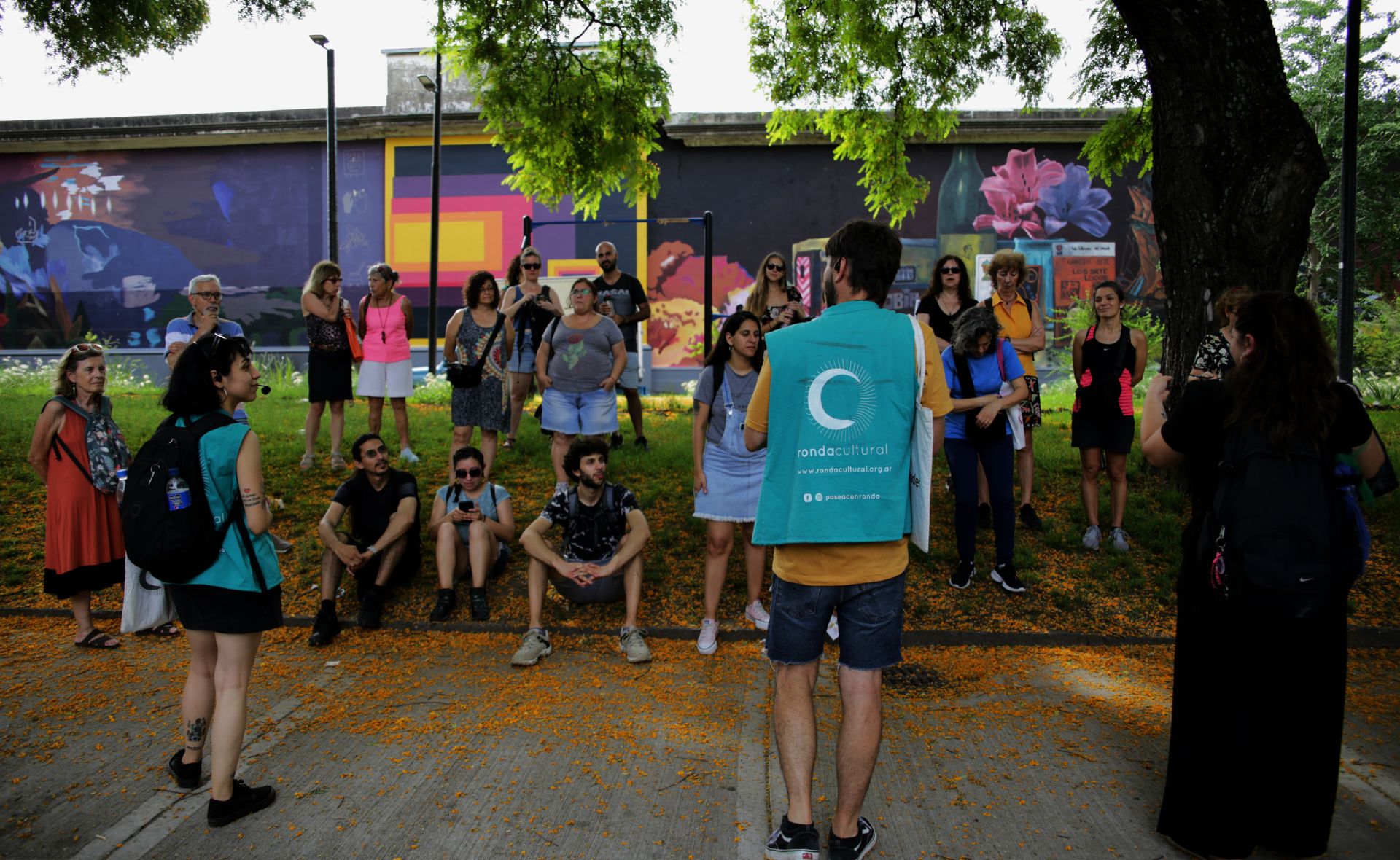
Comunidad Kichwa Oyacachi (Oyacachi, Napo, Ecuador)
The Kichwa Oyacachi Community, located in the province of Napo, Ecuador, is an Indigenous organization dedicated to celebrating its cultural identity, sustainably managing its natural resources, and strengthening its local economy.
Their territory is part of the Cayambe-Coca National Park, where they promote community tourism initiatives, agricultural production, fish farming, and ancestral handicrafts. The community follows principles of collective governance and active participation, fostering intercultural education and the empowerment of its members.
Through sustainable tourism, they aim to share their living culture with visitors, protect their natural environment, and generate a fair income to improve the quality of life for their inhabitants. Oyacachi has a Community Tourism Center managed by the local government, which has shown strong commitment to developing tourism activities in the community.
Learn more on Instagram.
The project they’ll be working on
Sowing Life: Sustainable reforestation and community empowerment in the Kichwa Oyacachi community through the construction of a community nursery in the Cedro Pamba sector, the grotto of the Virgin of Quinche”
The “Sembrando Vida: Sustainable Reforestation and Community Empowerment” project aims to tackle environmental degradation and economic vulnerability by creating a community nursery to produce native plants, restore local ecosystems, and strengthen community ecotourism.
The project addresses two urgent challenges: the loss of vegetation cover and the need for sustainable income opportunities. The nursery will produce at least 500 native plants annually, enabling the reforestation of 10 hectares of degraded land, while integrating tourists in environmental education and hands-on reforestation activities.
Direct beneficiaries are the 750 residents of Oyacachi, with a focus on women, youth, and older adults, who will participate in all stages of the project, fostering local empowerment and environmental stewardship.
Short-term expected outcomes include a 20% increase in community income from plant sales and ecotourism, participation of at least 1,000 tourists in environmental activities, production of 500 native plants per year, and ecological recovery of 10 hectares of degraded land. This initiative combines sustainable reforestation with community development, ensuring long-term benefits for both the environment and the people of Oyacachi.
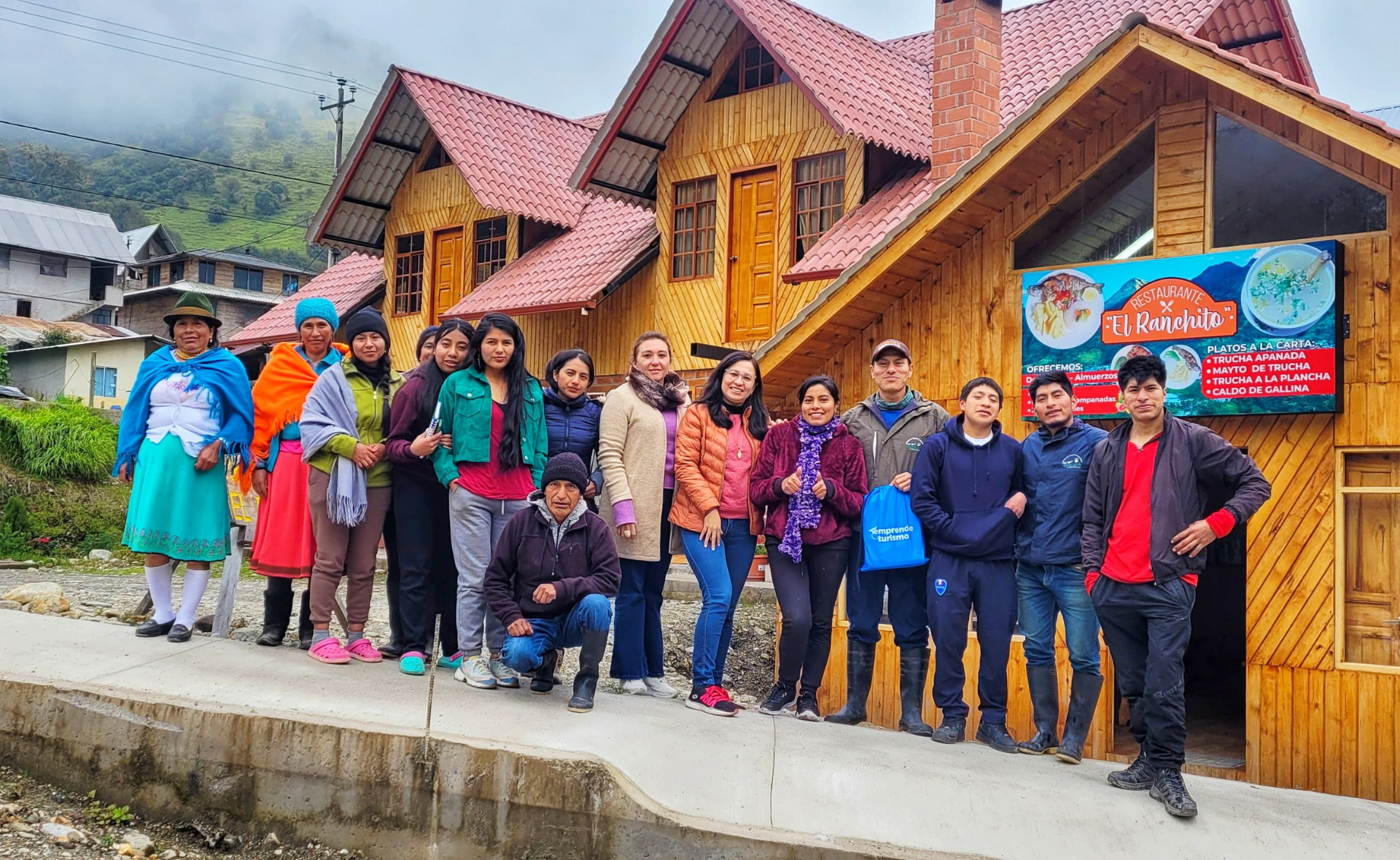
Asia
Catalyst for Change Vietnam (Danang, Vietnam)
The project they’ll be working on
“Her Kitchen Wellness Journeys: Empowering Single Mothers Through Healing Cuisine”
Her Kitchen: Wellness Culinary Journeys is an initiative by Catalyst for Change (C4C) in Danang and Hoi An, Vietnam, empowering single mothers through culinary training and entrepreneurship. Since its inception, the project has trained women in nutritious cooking and business skills, enabling them to start micro-businesses, gain part-time employment, and lead cooking experiences for international volunteers.
Building on this success, the project focuses on the emerging market of wellness and health-focused culinary tourism. Participating mothers are trained to create “food as medicine” experiences that highlight traditional health knowledge and local food heritage. The program develops specialized cooking tours, menus, and marketing materials, providing hands-on opportunities for visitors while generating sustainable income for the women.
Short-term outcomes include the launch of wellness cooking tours in Da Nang and Hoi An, increased livelihood opportunities for single mothers, and greater visibility for community-led wellness tourism in Vietnam, meeting growing demand for authentic, health-centred travel experiences.
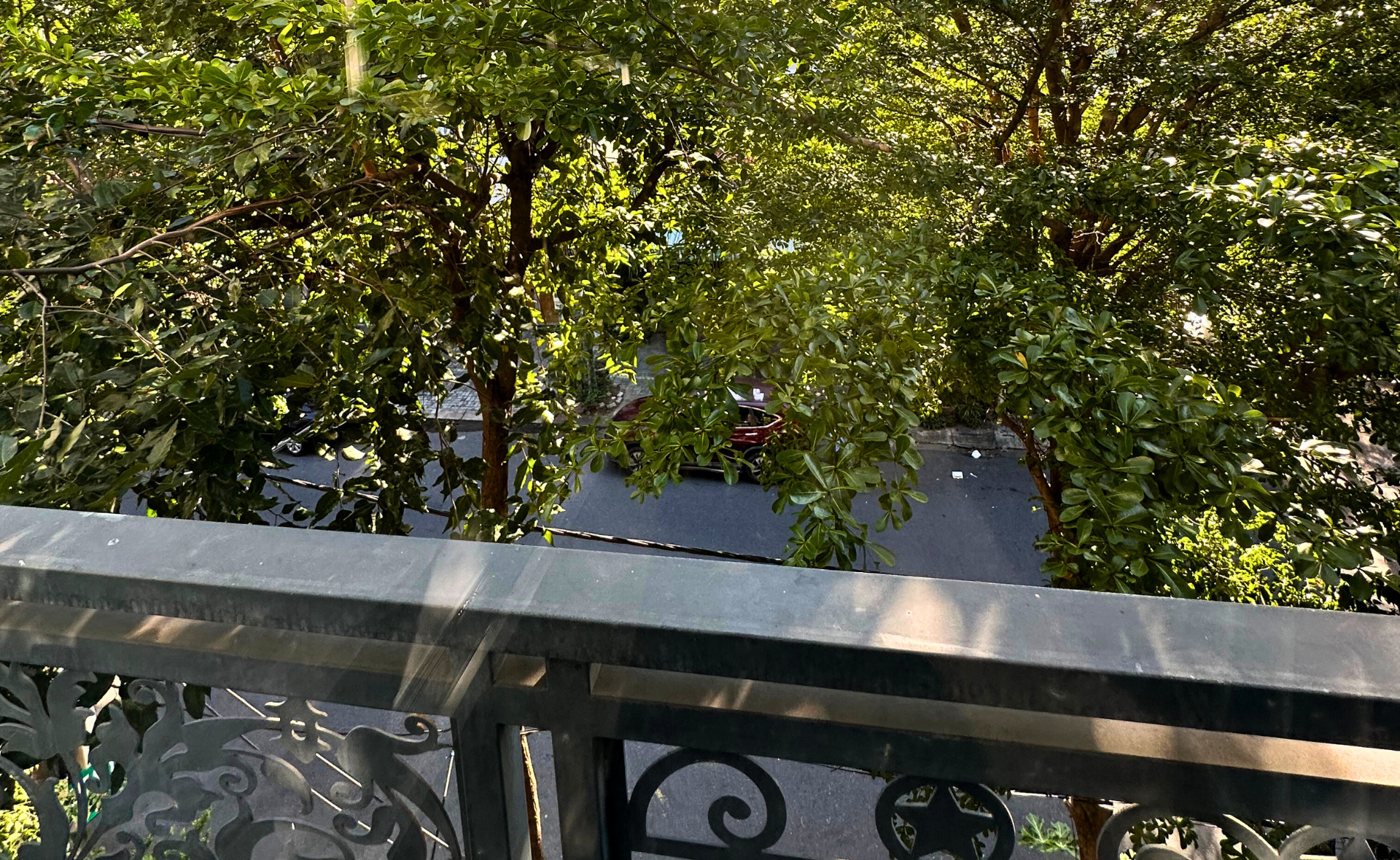
Kopi Sobean (Pajahan Village, Tabanan Regency, Bali, Indonesia)
The Pajahan Village Robusta Coffee Farmer Group, based in Pupuan District, Tabanan Regency, Bali, Indonesia, consists of 20 members. The group produces high-quality ground and roasted coffee, operates coffee nurseries, and creates organic fertilizer from coffee production waste.
It supports members by providing access to quality seedlings, promoting sustainable farming practices, and distributing organic fertilizer to improve the health of coffee plantations.
The group also engages young people as members, nurturing the next generation of coffee farmers. Its goal is to develop specialty coffee while fostering a healthier coffee farming ecosystem and creating opportunities for sustainable agricultural development.
Learn more on Instagram.
The project they’ll be working on
“Robusta Coffee Farm – Bali”
Pajahan Village in Pupuan District, Tabanan Regency, Bali, Indonesia, is home to 2,252 residents, most of whom are robusta coffee farmers. Current farming practices rely heavily on chemical fertilizers, and many young people are leaving agriculture, threatening the health of the coffee ecosystem and the continuity of local farming.
To address this, the village is developing a coffee-focused ecotourism initiative. Visitors will experience life on a coffee plantation, participate in activities such as coffee nurseries, organic fertilizer production, and coffee harvesting, and learn about sustainable farming practices. The project aims to promote healthier coffee cultivation, provide easier access to seedlings, and engage the younger generation in coffee farming.
By integrating ecotourism with sustainable practices, the initiative seeks to create a resilient coffee ecosystem, generate local employment, and ensure long-term opportunities for sustainable robusta coffee farming in Pajahan Village.
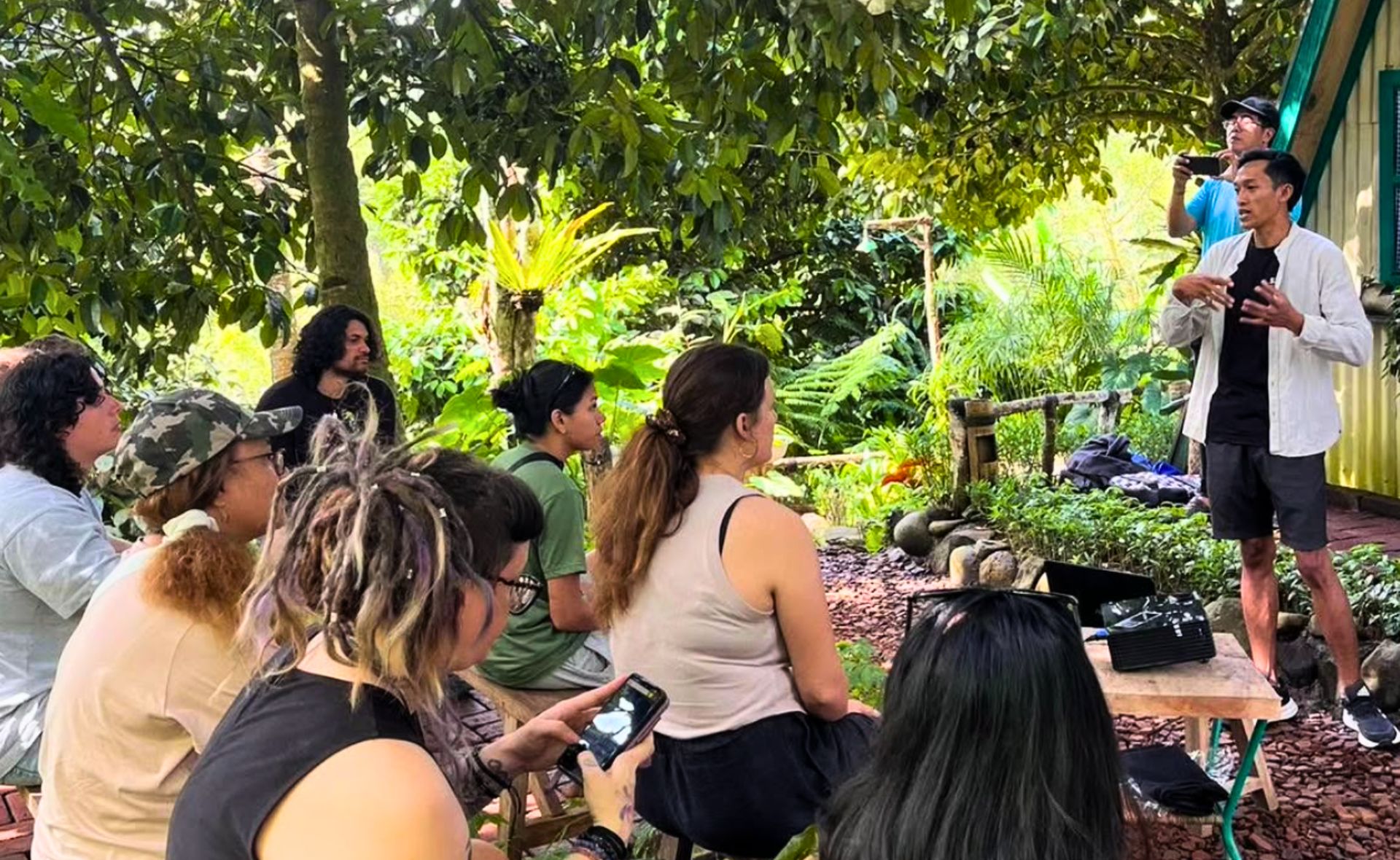
Ak-Orgo – Center of Craft Heritage (Barskoon Village, Issyk-Kul region, Kyrgyzstan)
Ak-Orgo – a center dedicated to preserving and sharing the history and culture of the nomadic Kyrgyz. The center hosts workshops for producing traditional felt and leather goods, crafting national musical instruments, and constructing yurts, along with related products and decorations.
Currently, the center employs 12 people and welcomes over 100 groups of local and international tourists each year.
Learn more on Instagram.
The project they’ll be working on
“Boorsok show is a culinary master class on making traditional bread (boorsok)”
Boorsok Show is an interactive culinary experience at the Ak-Orgo Center in Barskoon village, introducing guests to traditional Kyrgyz bread-making. Boorsok, a must on any festive table, is prepared by visitors themselves, providing hands-on insight into Kyrgyz cuisine and culture.
The project will build a summer kitchen equipped for demonstrations, creating at least two new local jobs and expanding the center’s offerings to include traditional food alongside crafts and yurt-making. The goal is to provide a full cultural immersion for guests, preserve culinary traditions, and generate sustainable income for the community.
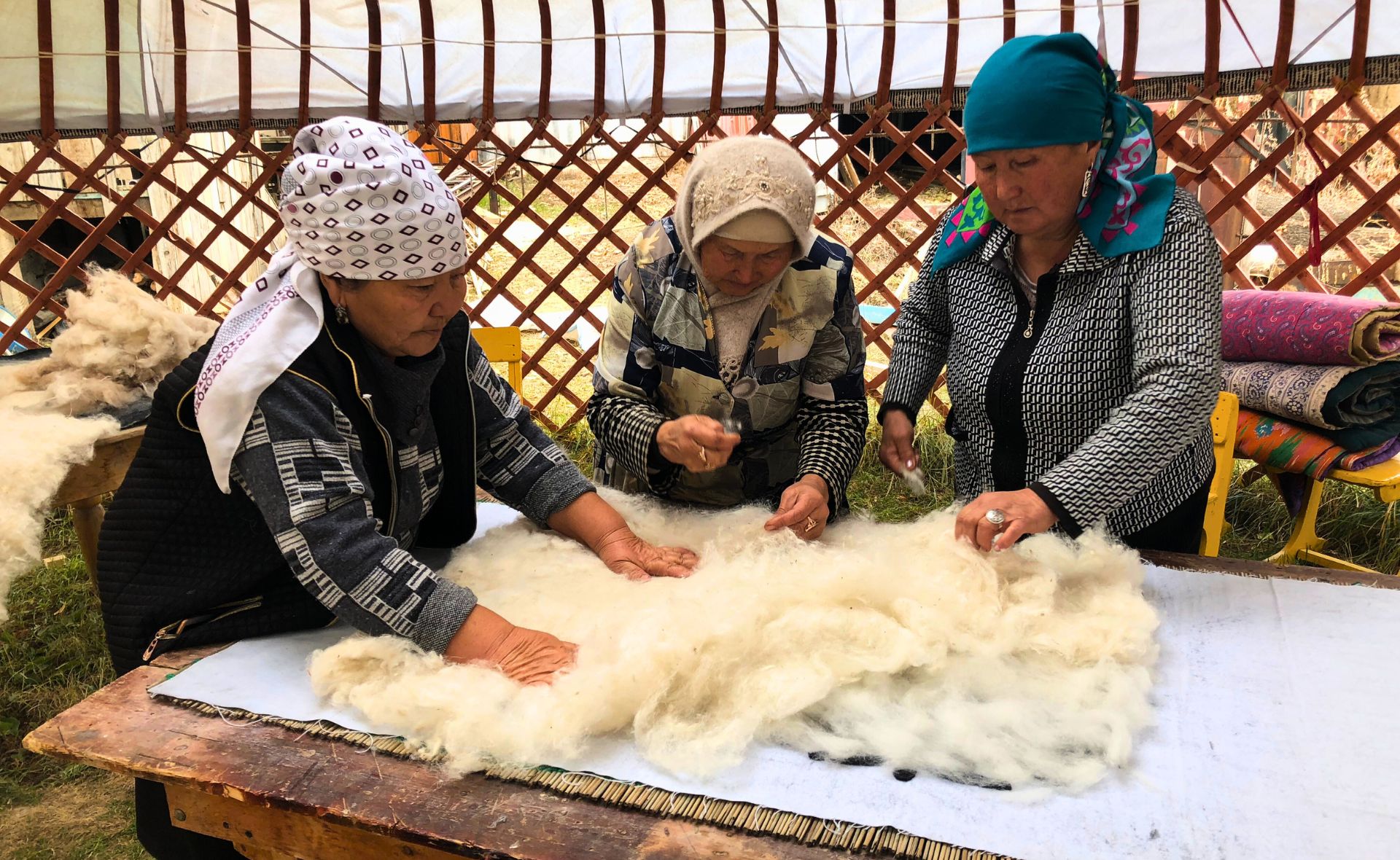
Friends of Sea Turtle Education & Research – FOSTER (Pulau Libaran, Sandakan, Sabah, Malaysia)
On 14 October 2014, Friends of Sea Turtles Education & Research (FOSTER), also known as Persatuan Pencinta dan Pemuliharaan Hidupan Penyu Negeri Sabah, was officially registered in Malaysia. FOSTER supports the Walai Penyu Conservation Park project on Libaran, providing a platform and technical help to make it happen. Its main goal is to carry out the work agreed on in the Memorandum of Understanding (MOU) with the Sabah Wildlife Department.
Learn more on their website.
The project they’ll be working on
“Poverty eradication by creating a sustainable economic development”
This project aims to reduce poverty in Pulau Libaran by creating a community-based eco-crafts cooperative that trains and employs local women and youth to produce sustainable handicrafts from recycled and natural materials for tourists. It also develops community-led eco-tourism experiences highlighting local culture, traditional knowledge, and conservation efforts, including sea turtle protection. The project targets economically vulnerable households reliant on seasonal fishing, providing skill training, employment, and alternative income streams.
Short-term results (6–12 months) include a functioning cooperative with at least 20 trained members, a 20% increase in household income for participating families, and increased environmental awareness among the community, especially youth.
Planeterra funding supports conservation, eco-tourism, and skill-building activities at Walai Penyu Conservation Park, including turtle nesting protection, eco-handicraft training, and interactive tourism experiences. Local stakeholders provide additional operational support through in-kind contributions and volunteer efforts.
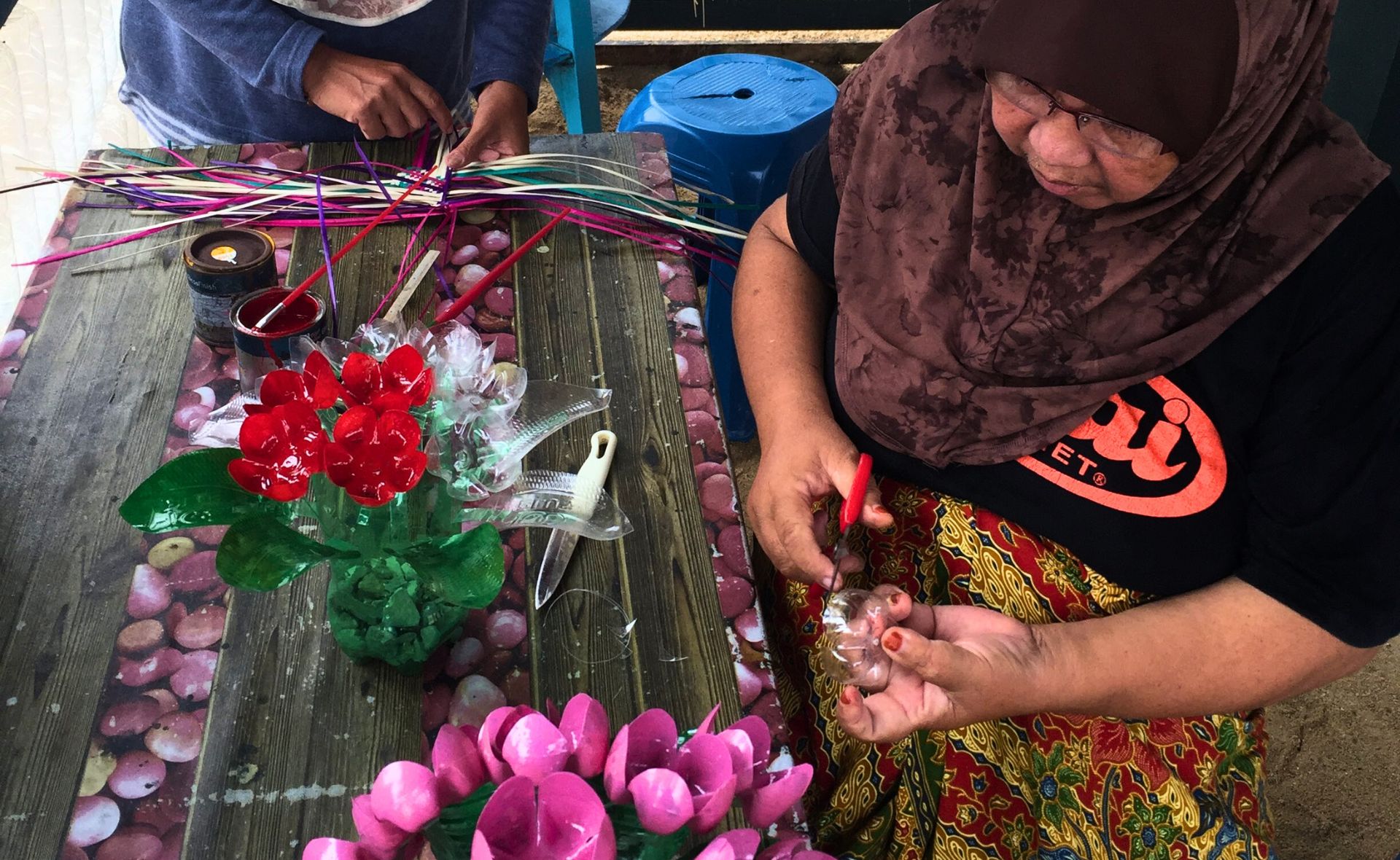
Indian Grameen Services (Hyderabad, India)
Indian Grameen Services (IGS) is a not-for-profit Section 8 Company, established on February 26, 1987, as an action research organization. Its mission is “Incubating Innovations for Pro-Poor Sustainable Livelihoods,” guided by the vision of “Kaayam Rojgar, Khush-haal Pariwar” (Sustainable Livelihoods, Prosperous Households). IGS explores opportunities to promote and sustain livelihoods through initiatives across multiple sectors.
Over the years, IGS has actively worked on community development and livelihood enhancement in various ecosystems, focusing on themes such as natural resource management, improved agricultural practices, livestock management, forest-based livelihoods, non-farm micro-enterprises, community-based tourism, and renewable energy.
IGS works with poor and marginalized communities in rural and forested areas, engaging diverse groups including adolescent girls and young women, small and marginal landholders, the landless, micro-entrepreneurs, and community-based institutions. A core focus is building community institutions to strengthen local self-governance and leadership, ensuring locally led development.
The project they’ll be working on
“Pakshi Teertha: Community-Led Conservation & Ecotourism”
The Pakshi Teertha project in Beladwara village, Odisha, is a community-led initiative by the Kuvi Kandha tribal women focused on forest regeneration and stork conservation. It aims to create sustainable livelihoods through ecotourism, including birdwatching tours, homestays, and cultural experiences. The project addresses youth migration, habitat loss, and weak community institutions, while strengthening governance, building skills, increasing incomes, and protecting biodiversity.
Planeterra support will fund training for 30 women in ecotourism services and help establish the community-based Pakshi Teertha People’s Trust, developing market-ready ecotourism products. This initiative offers a replicable model for conservation-led rural development that reconnects people with nature.
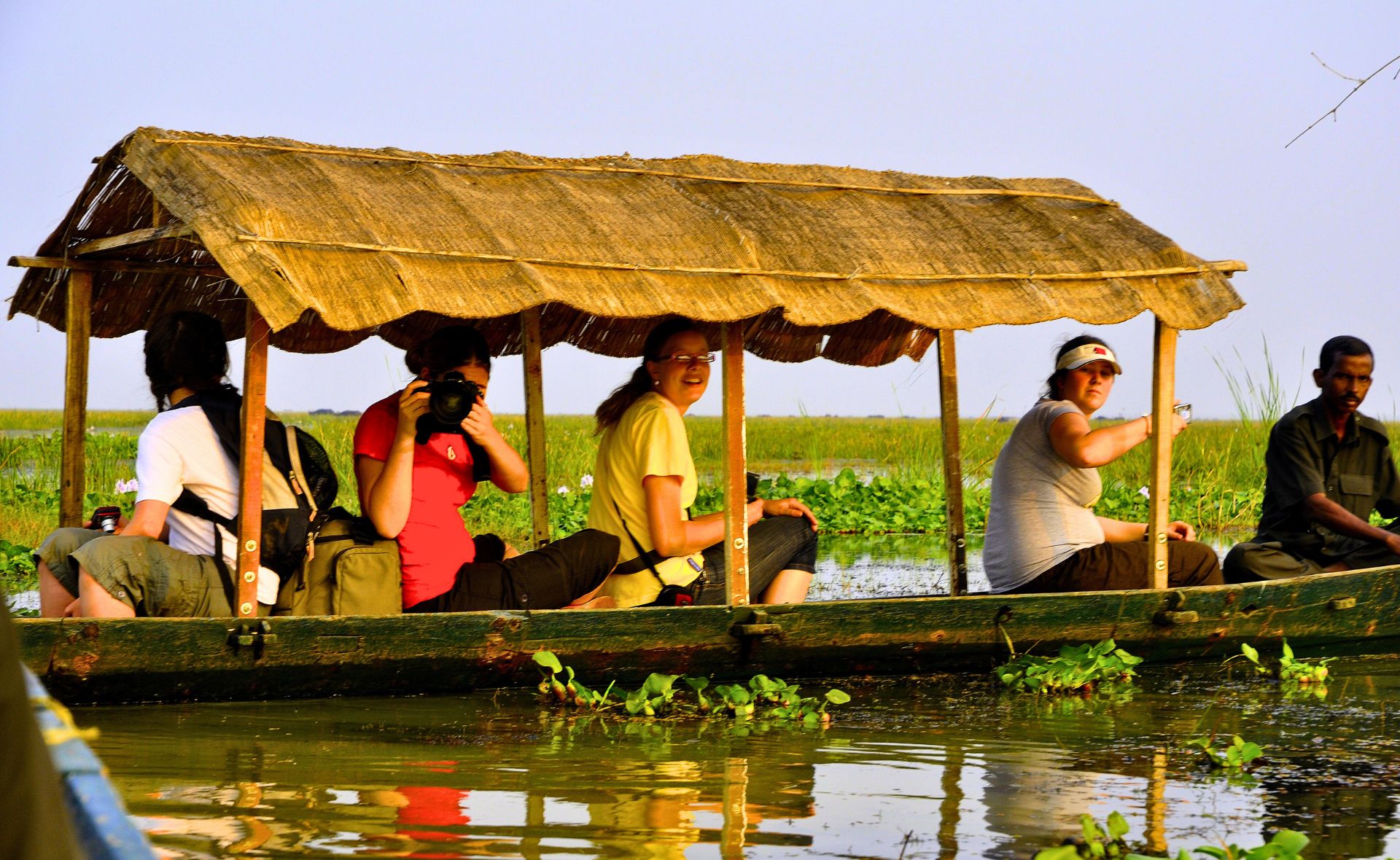
Ban Huay Thum Homestay (Luang Prabang, Lao PDR)
Ban Huay Thum Homestay, situated in the village of Pak Beng along the Mekong River in Laos, hosts G Adventures travellers journeying between Luang Prabang and the Thai border at Huay Xai.
The homestay provides a unique overnight experience that fosters cultural exchange and local connection. Vivu Journeys is seeking funding to enhance essential facilities—including a community hall and kitchen, solar power, toilets, sleeping arrangements, and safer walkways during the rainy season—to improve guest comfort and support the community.
The project also includes training in hygiene, cooking, and hospitality to empower local residents.
This initiative is exclusive to G Adventures customers and forms part of the Planeterra project, generating sustainable jobs and long-term benefits for the Ban Huay Thum community.
The project they’ll be working on
“Ban Huay Thum Homestay”
Ban Huay Thum Homestay in Pak Beng, Laos, provides travellers with a remote, authentic cultural experience along the Mekong River. The project aims to improve living facilities, expand capacity, and, critically, construct a safe walkway from the boat pier to the homestay by the end of 2025.
Infrastructure upgrades include enhanced sleeping arrangements, kitchen and dining improvements, and safer bamboo stairs and walkways. These improvements will create jobs, generate income for the community, and ensure a safer, more welcoming experience for visitors and residents alike.
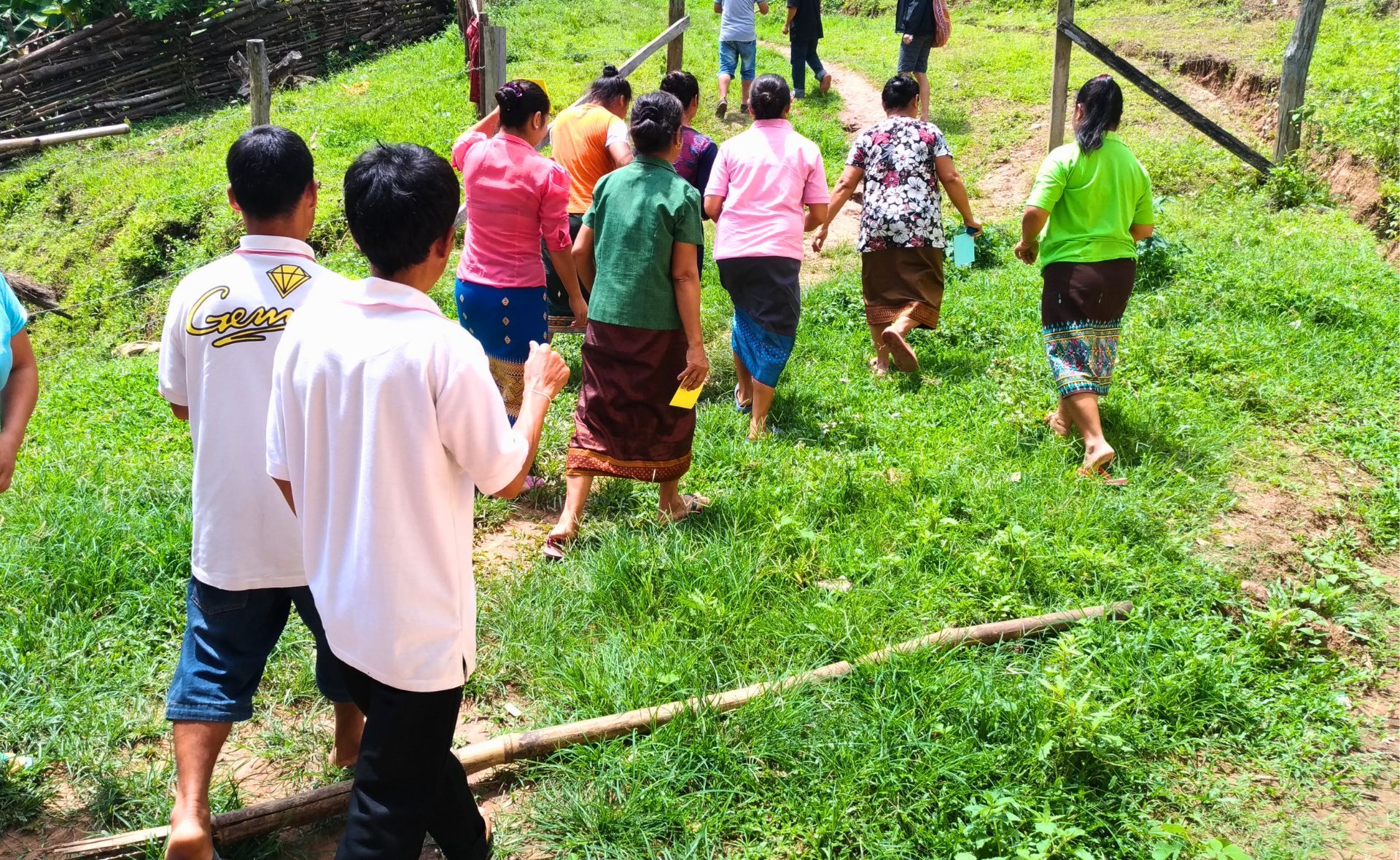
Tourism is a powerful tool for communities working to celebrate their heritage, strengthen local economies, and share their stories with the world. The Global Community Tourism Fund helps strengthen these efforts, offering flexible support to bring community-led ideas to life.
Want to be part of it? Your support helps grow this fund and expand opportunities for community tourism initiatives across the globe. Click here to donate to the Global Community Tourism Fund.


Post a comment